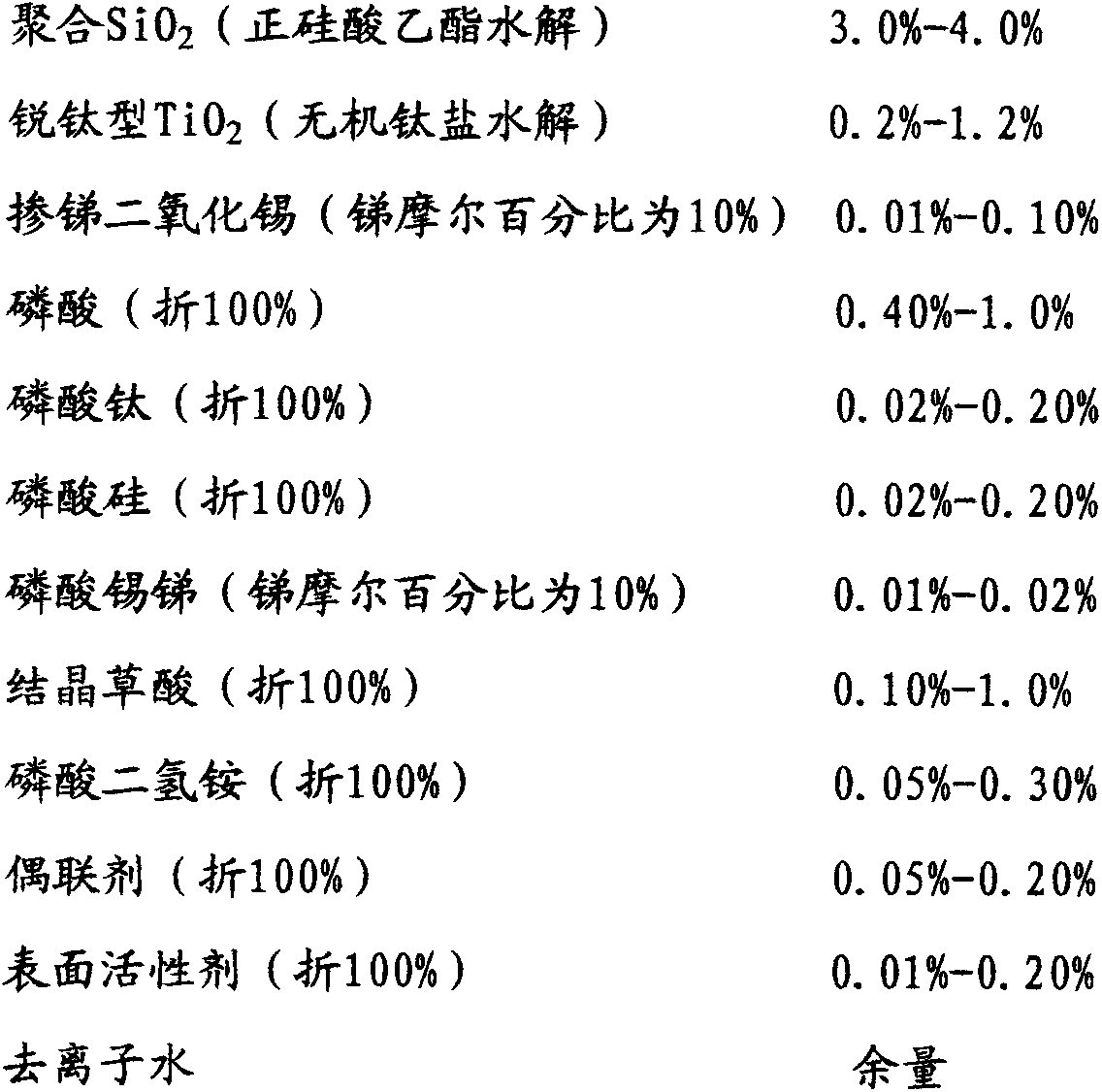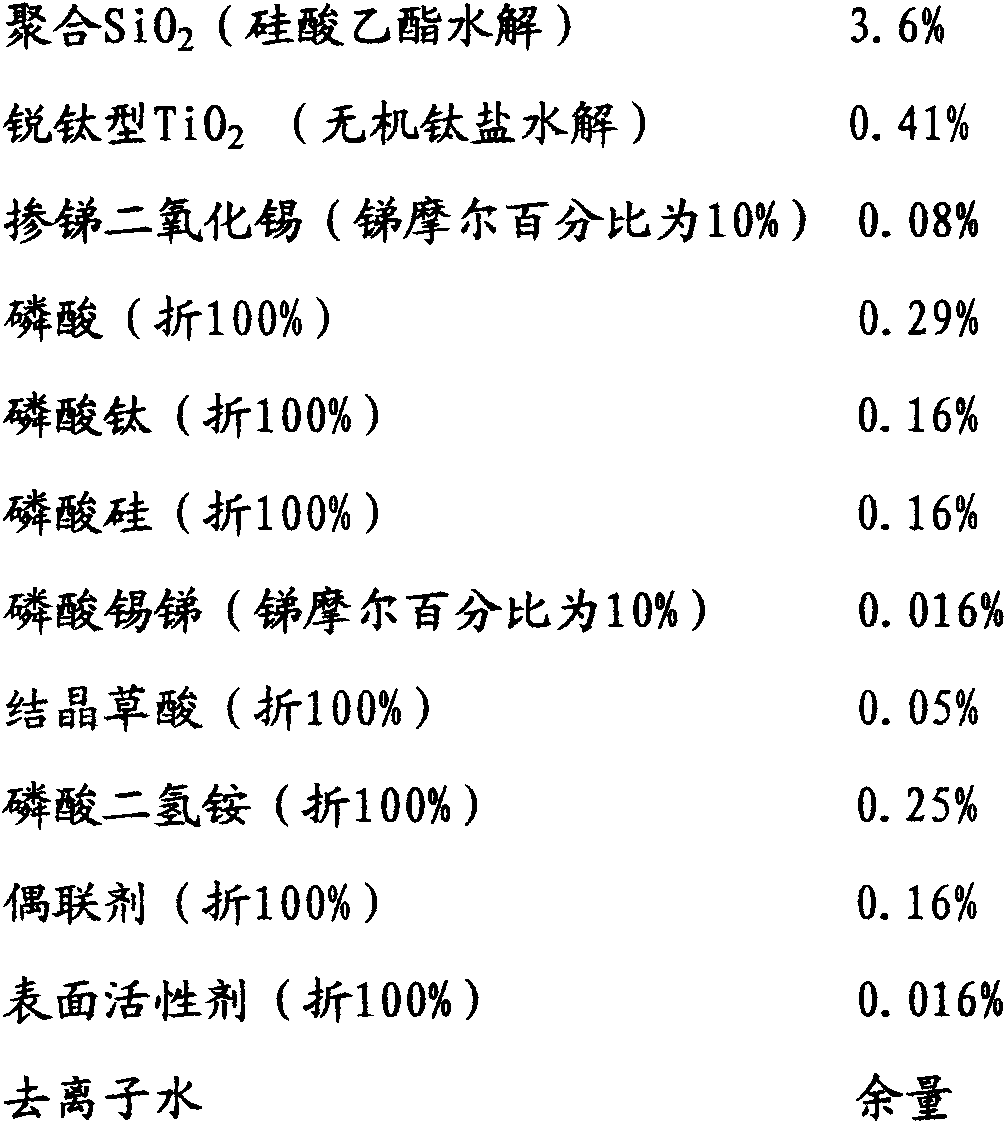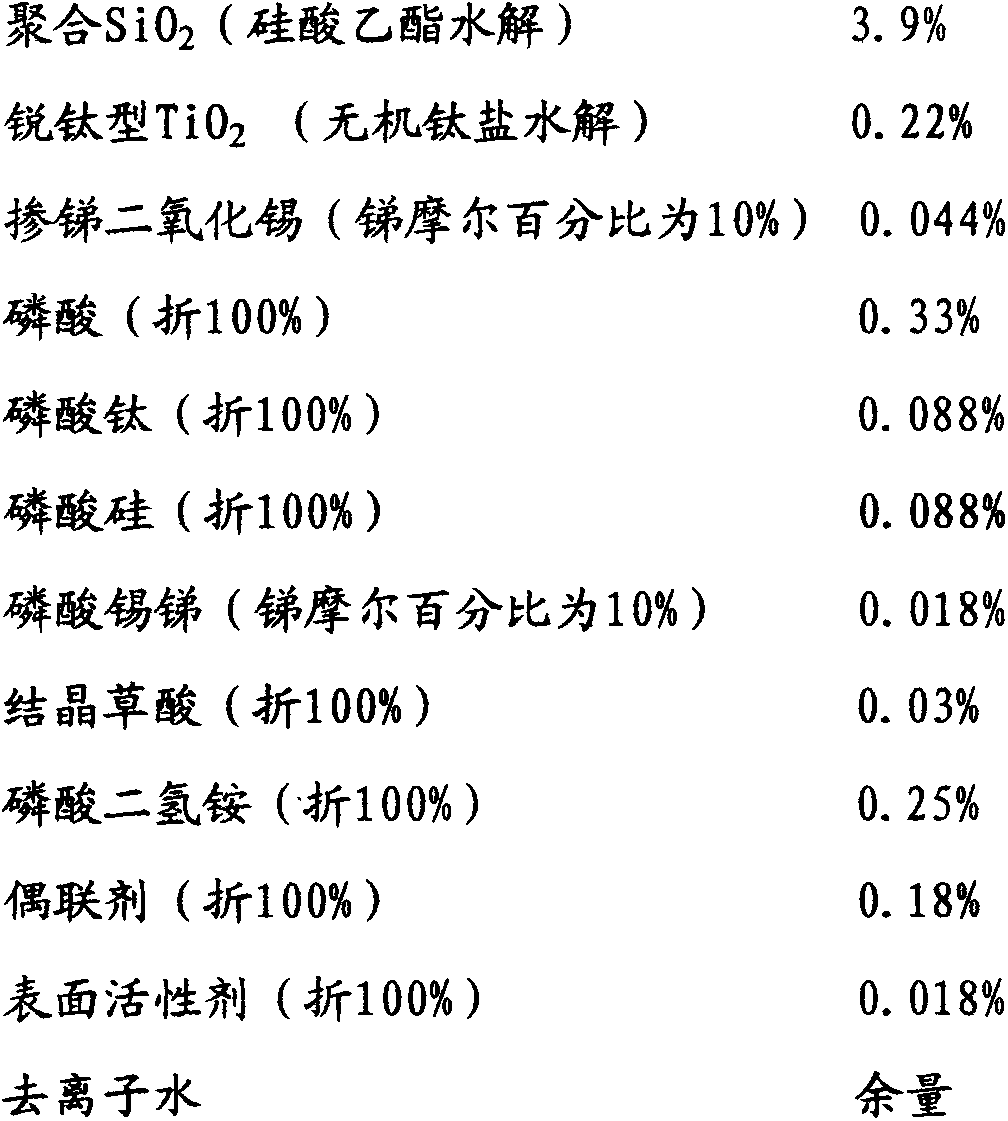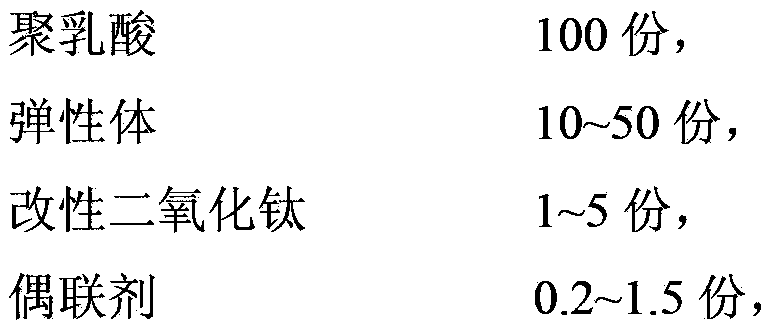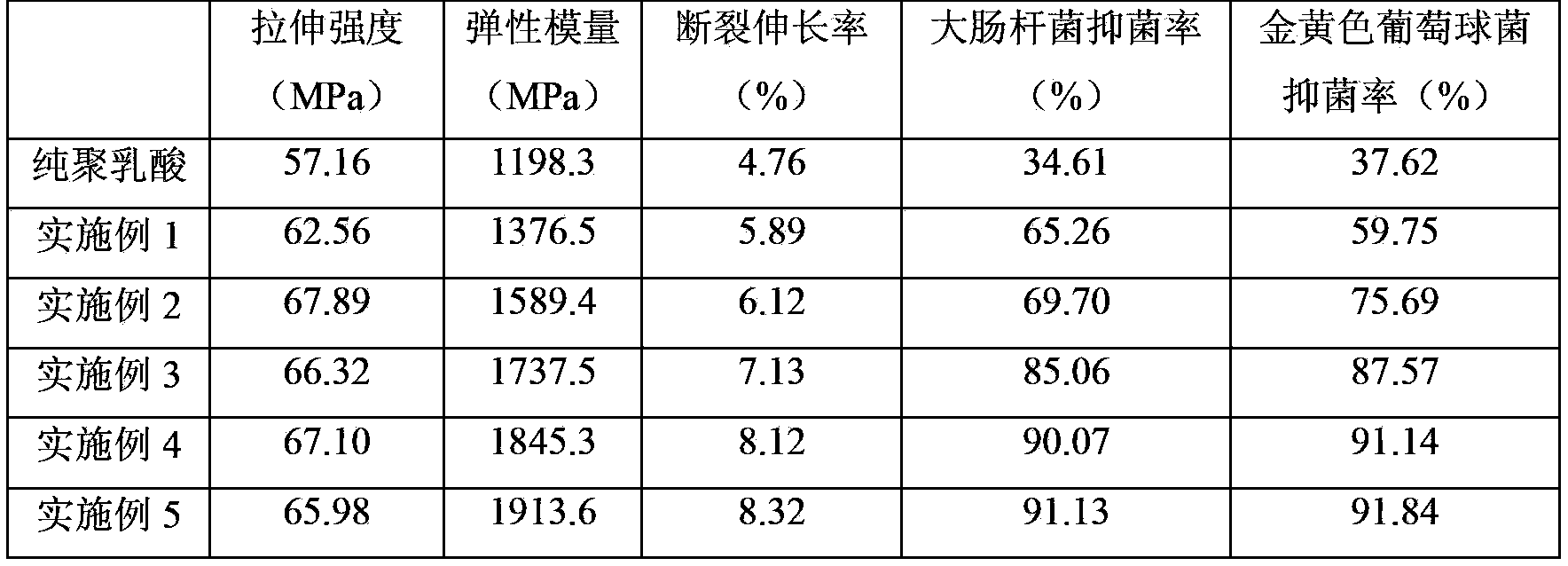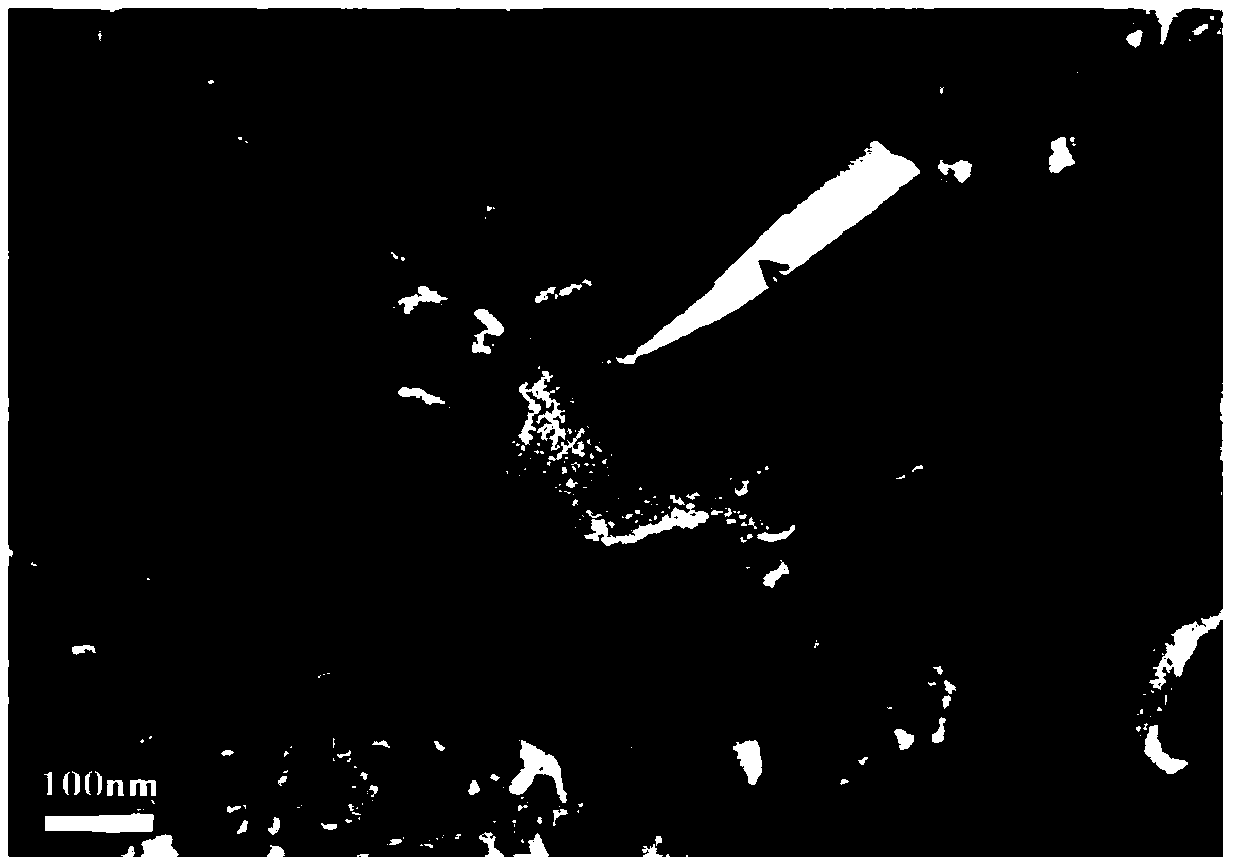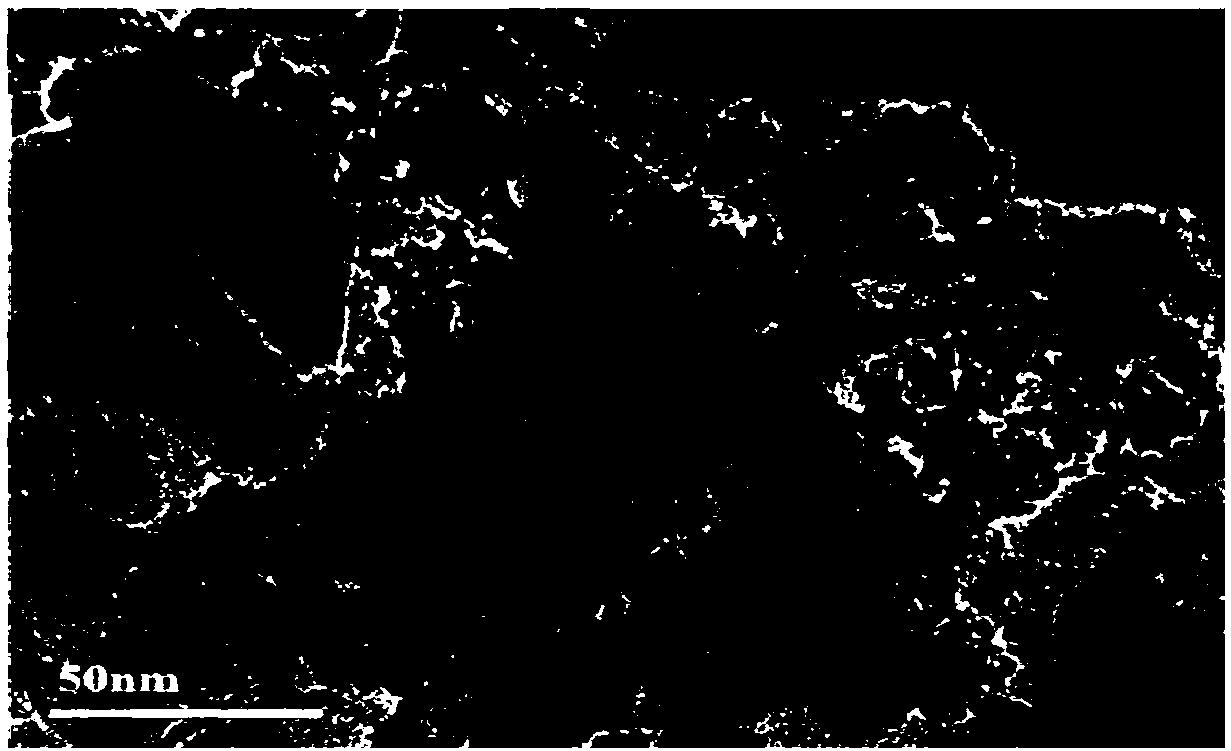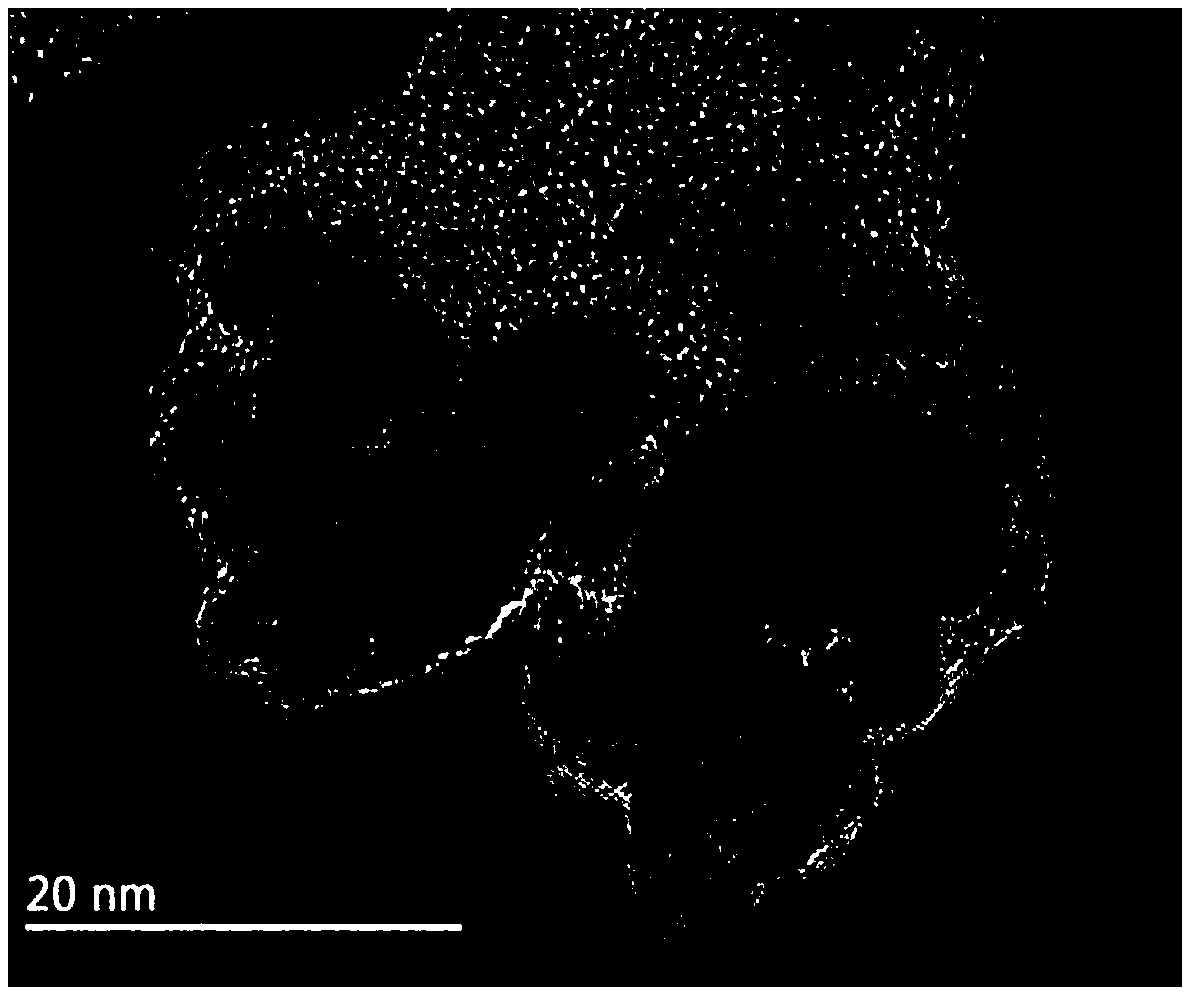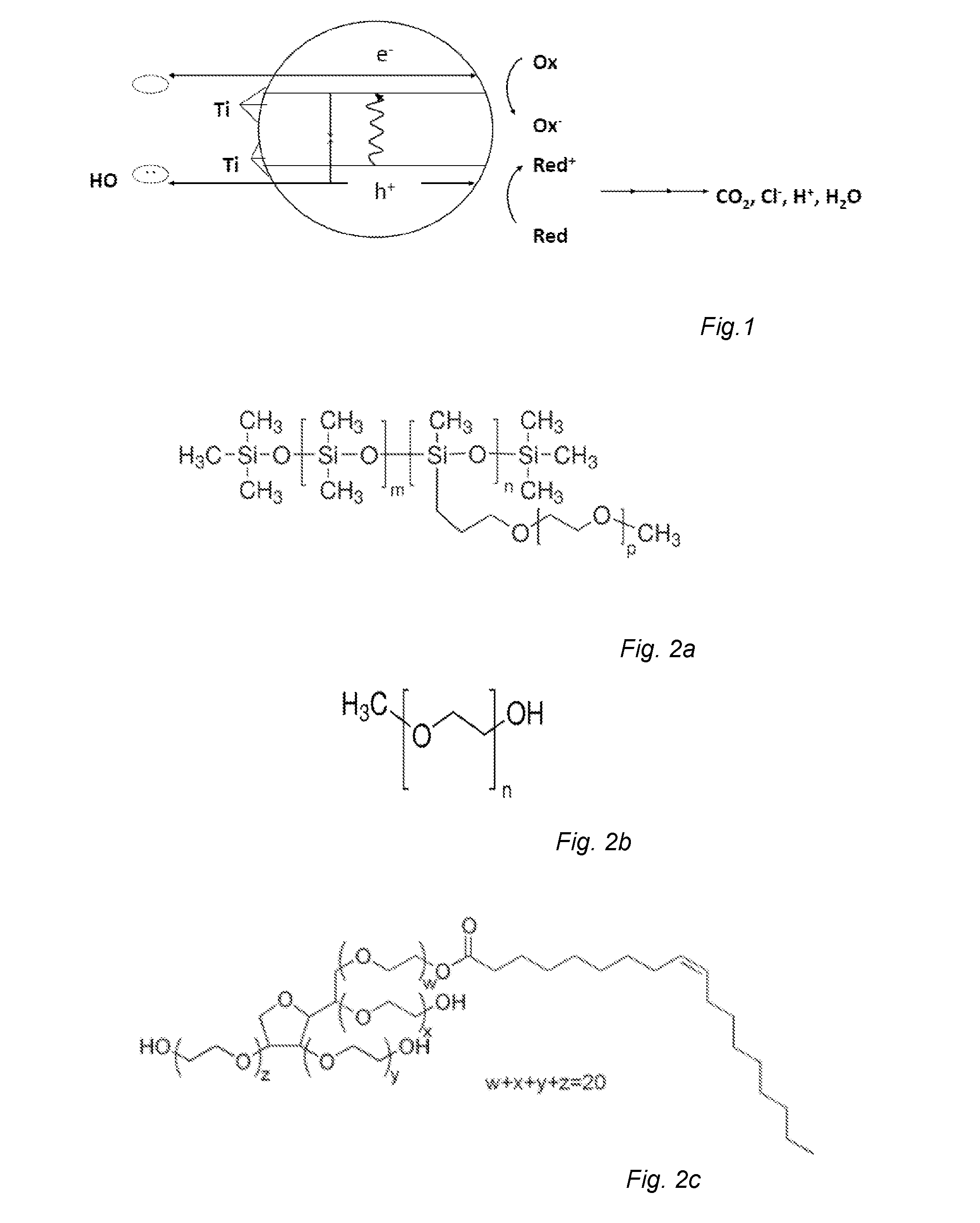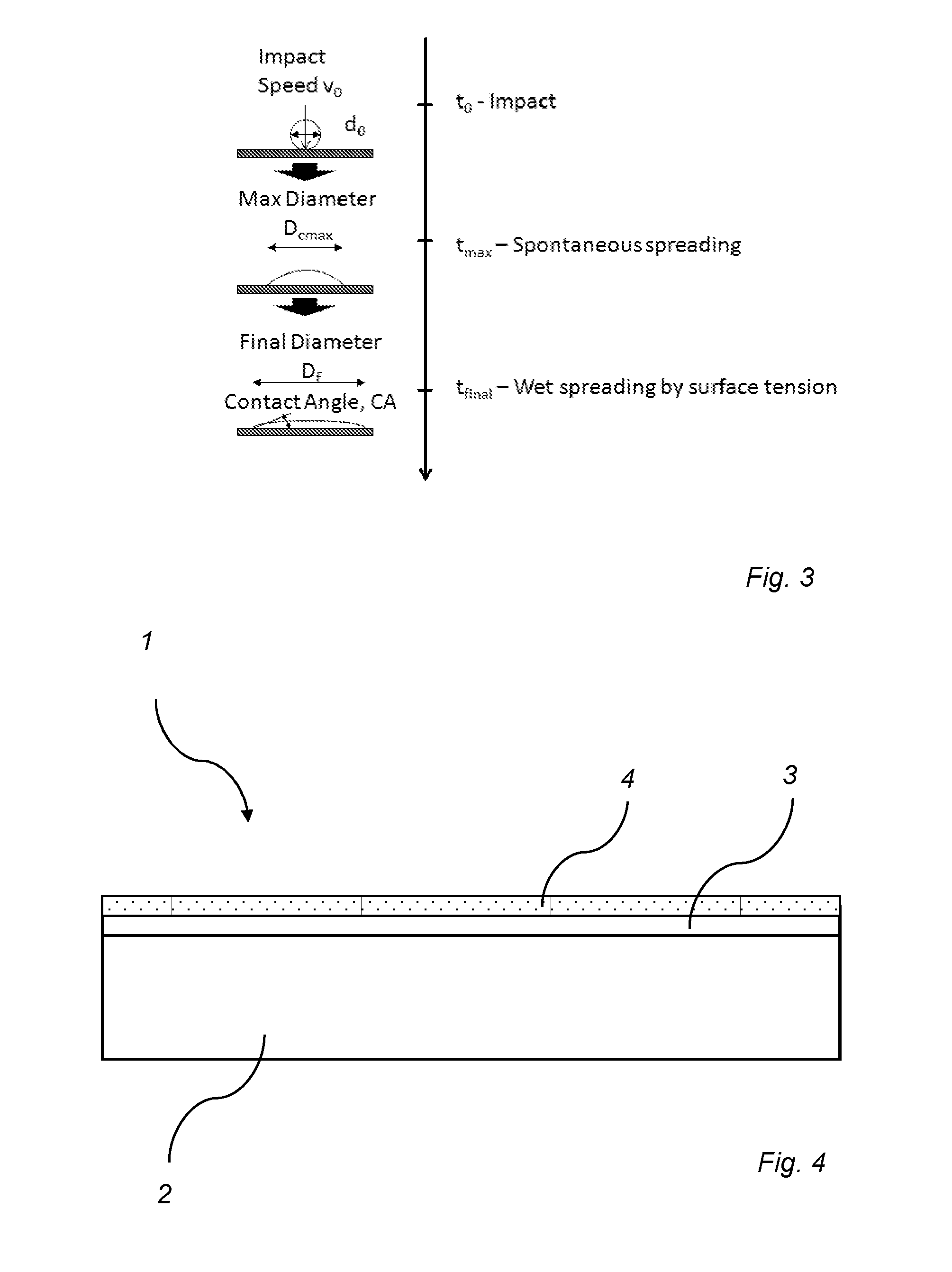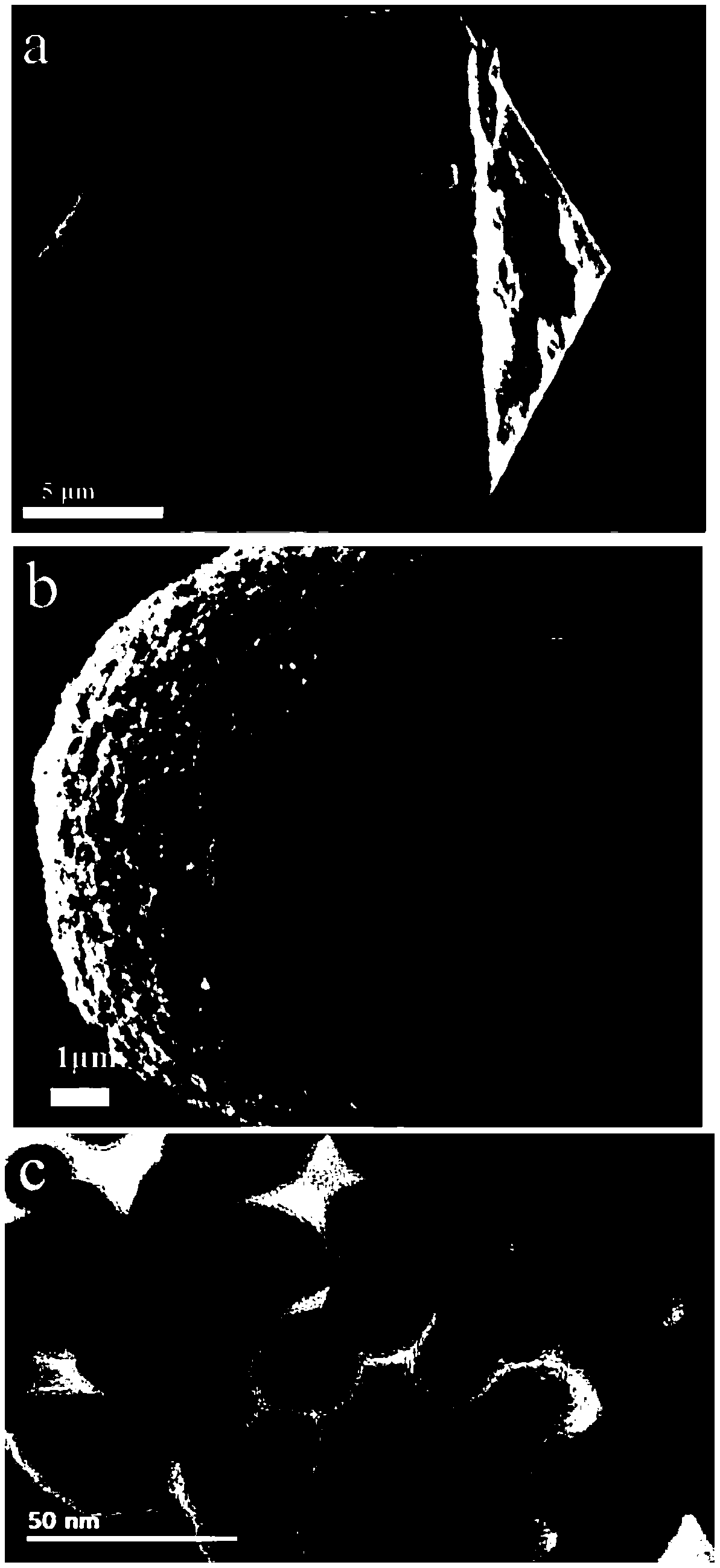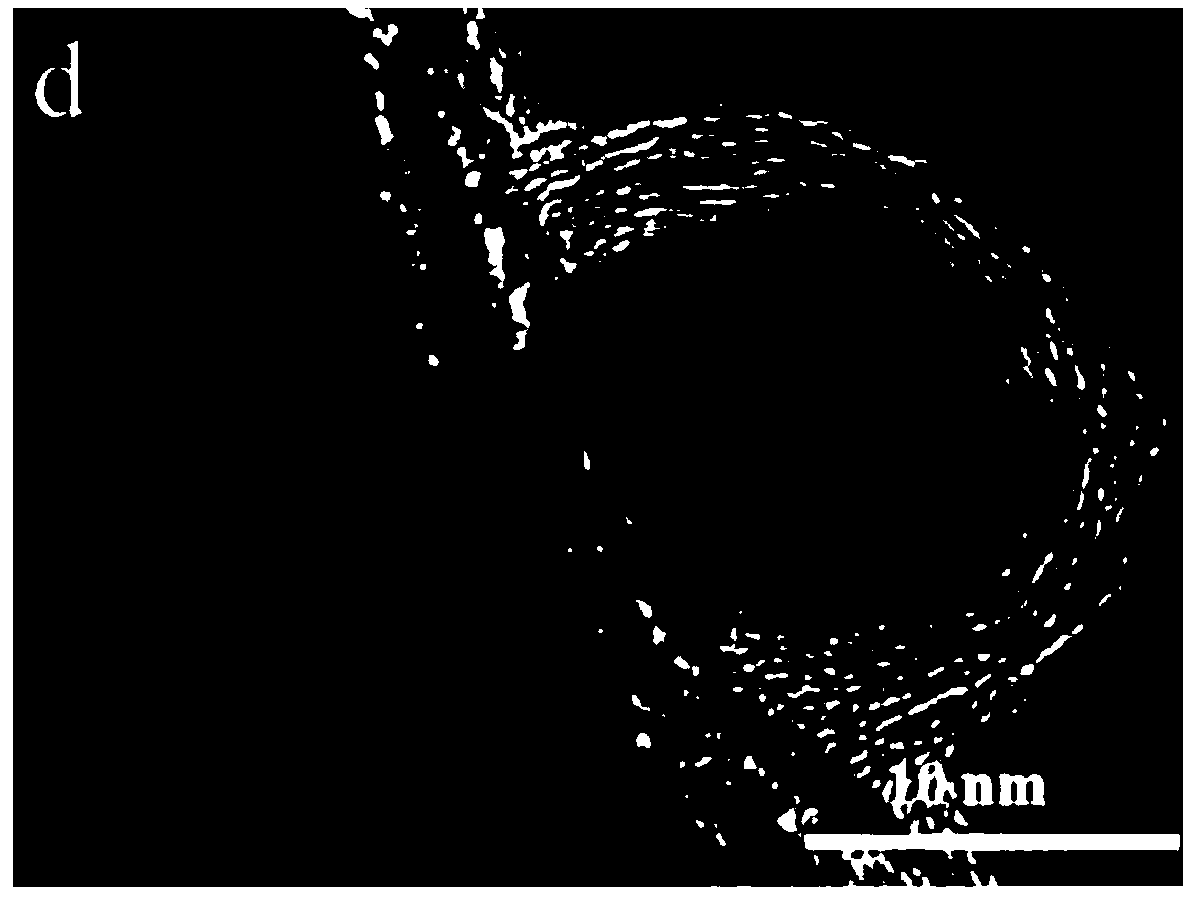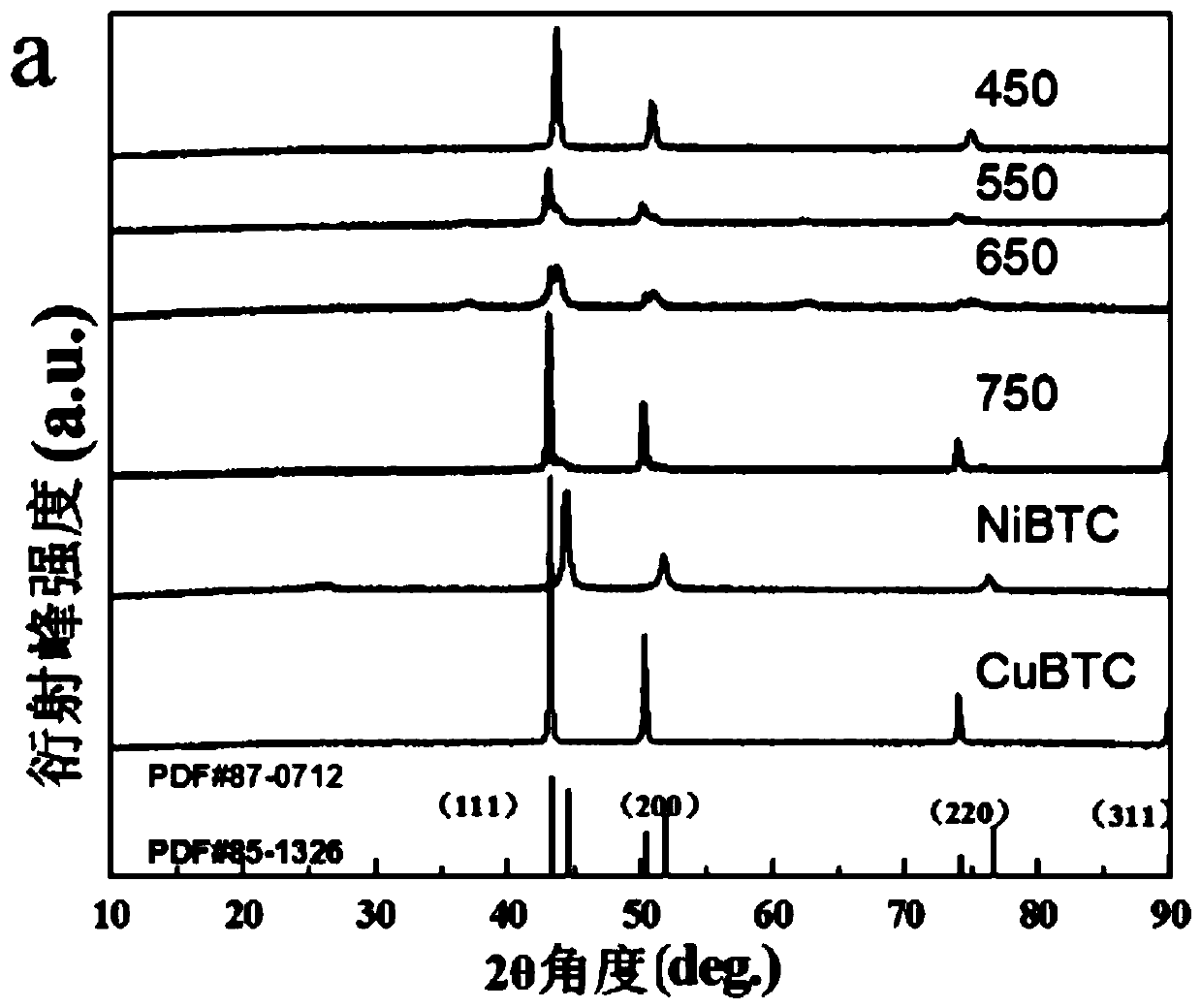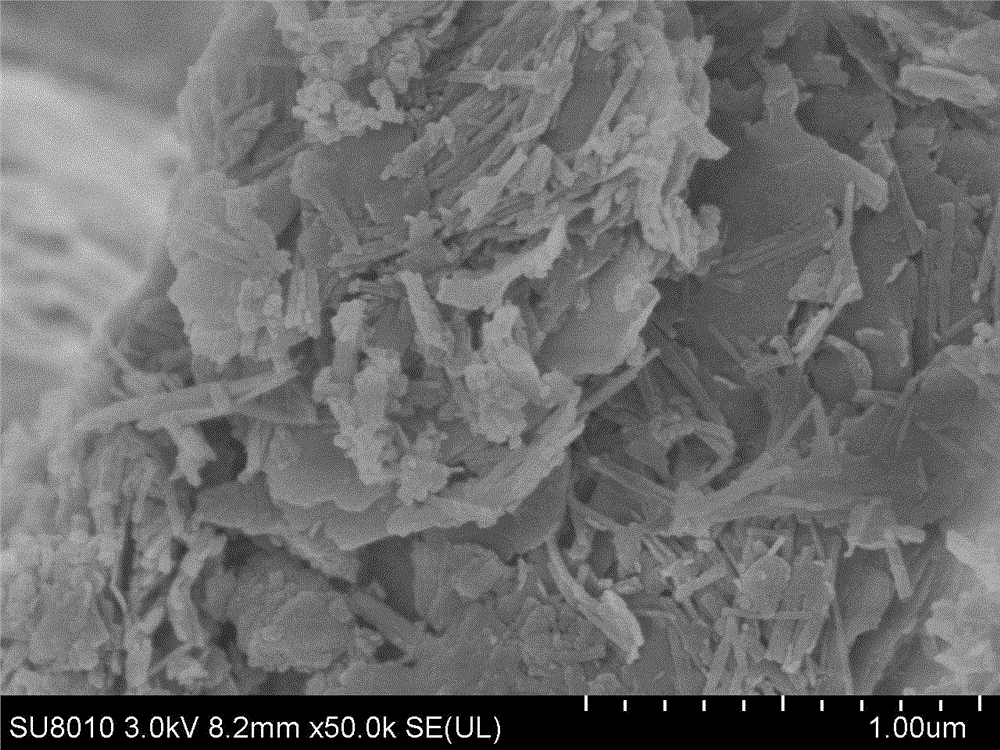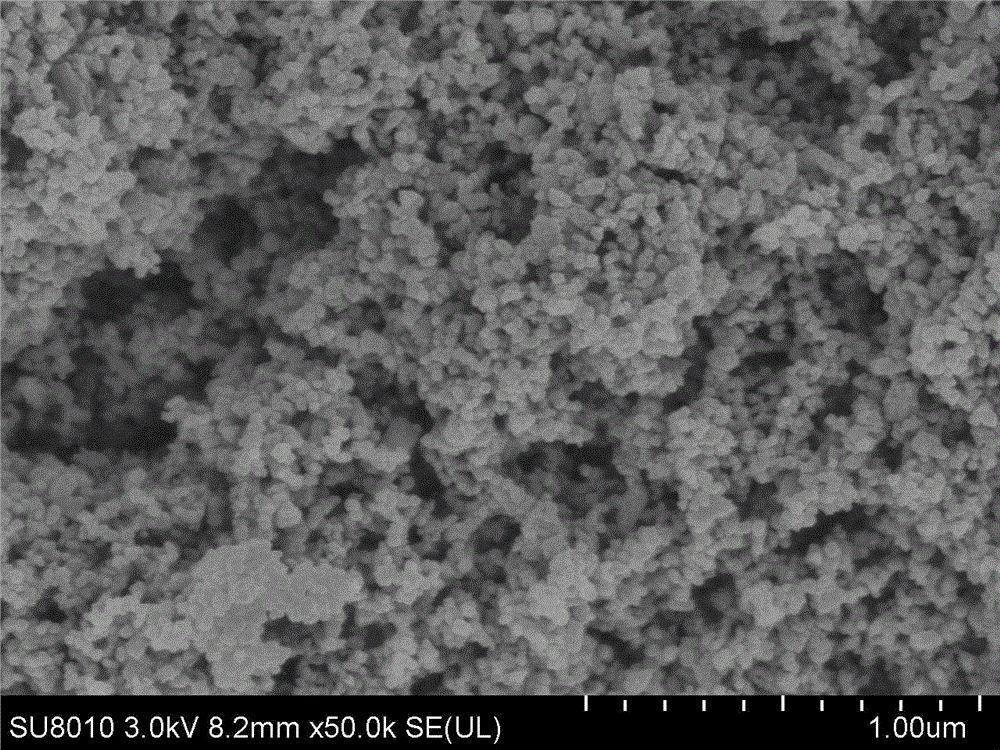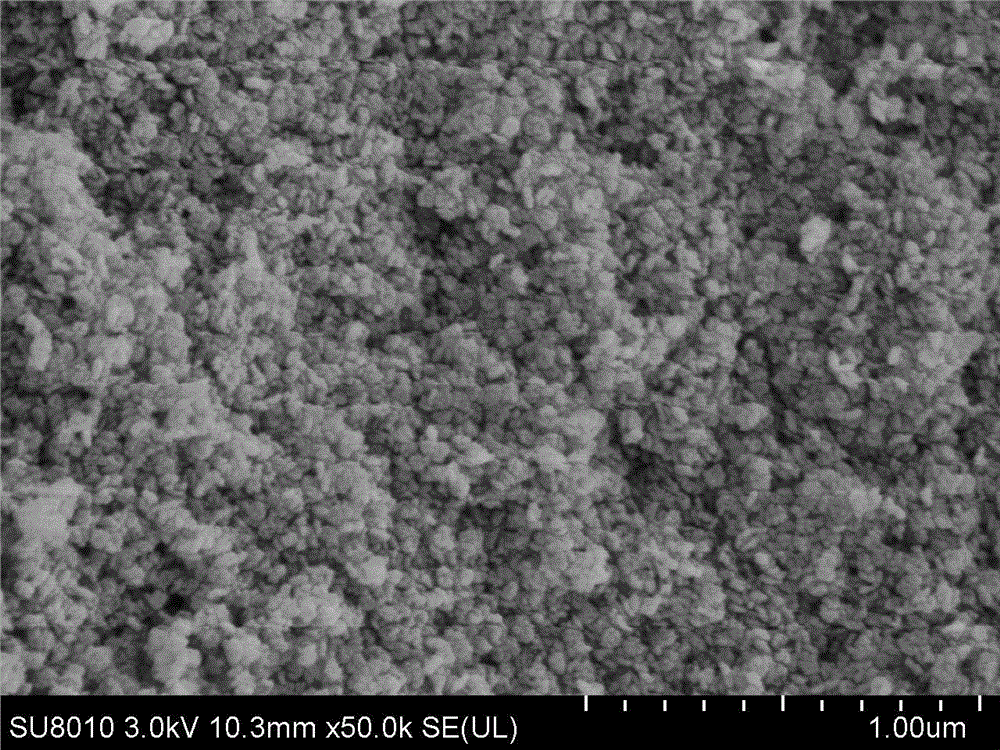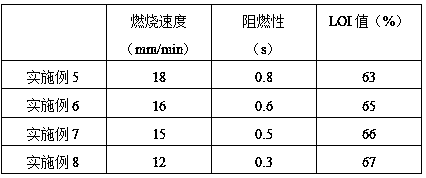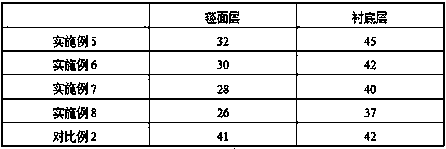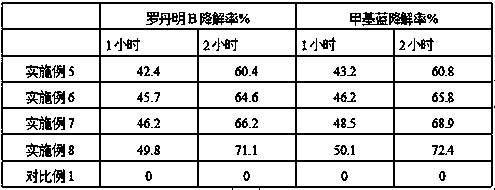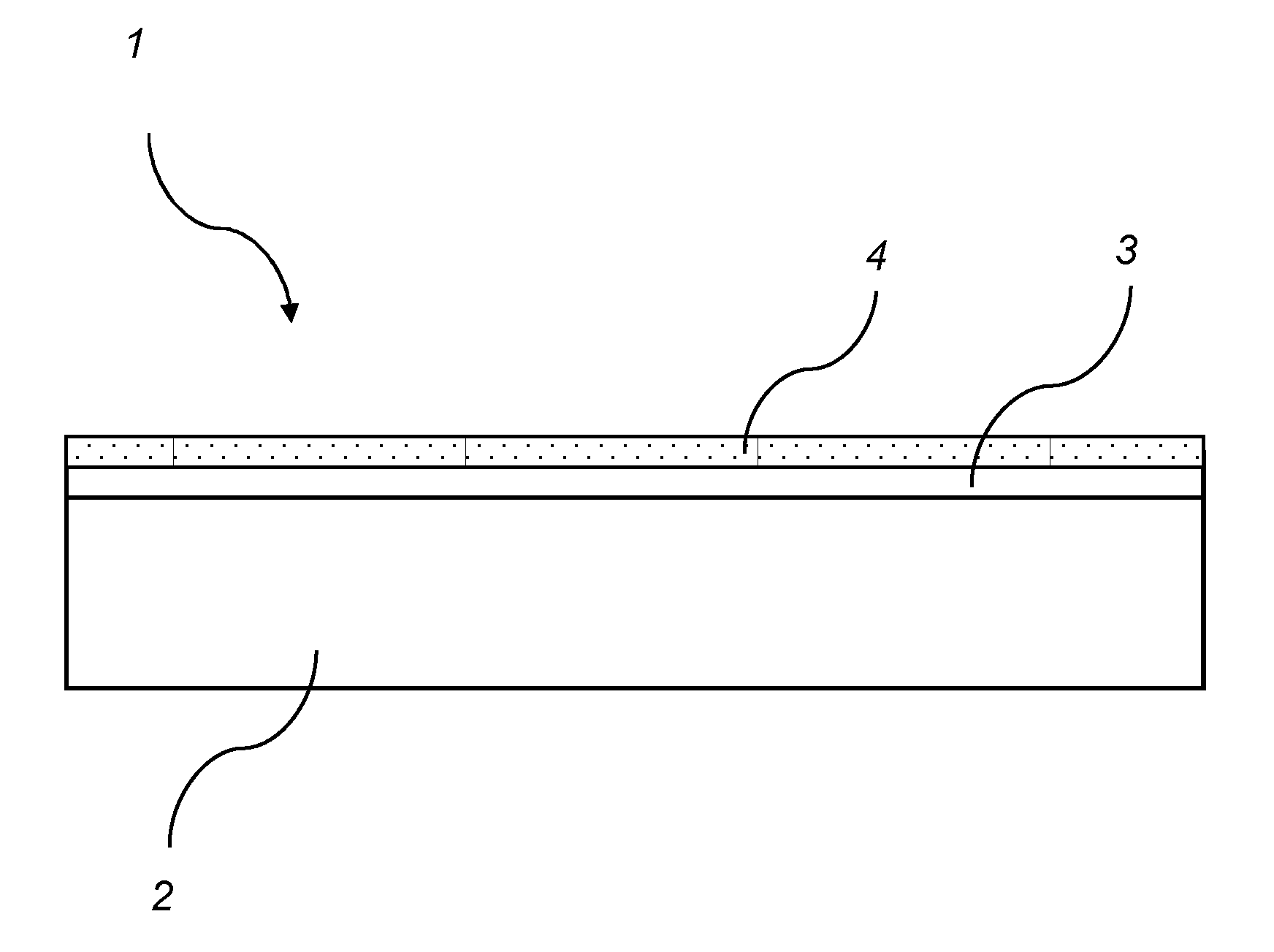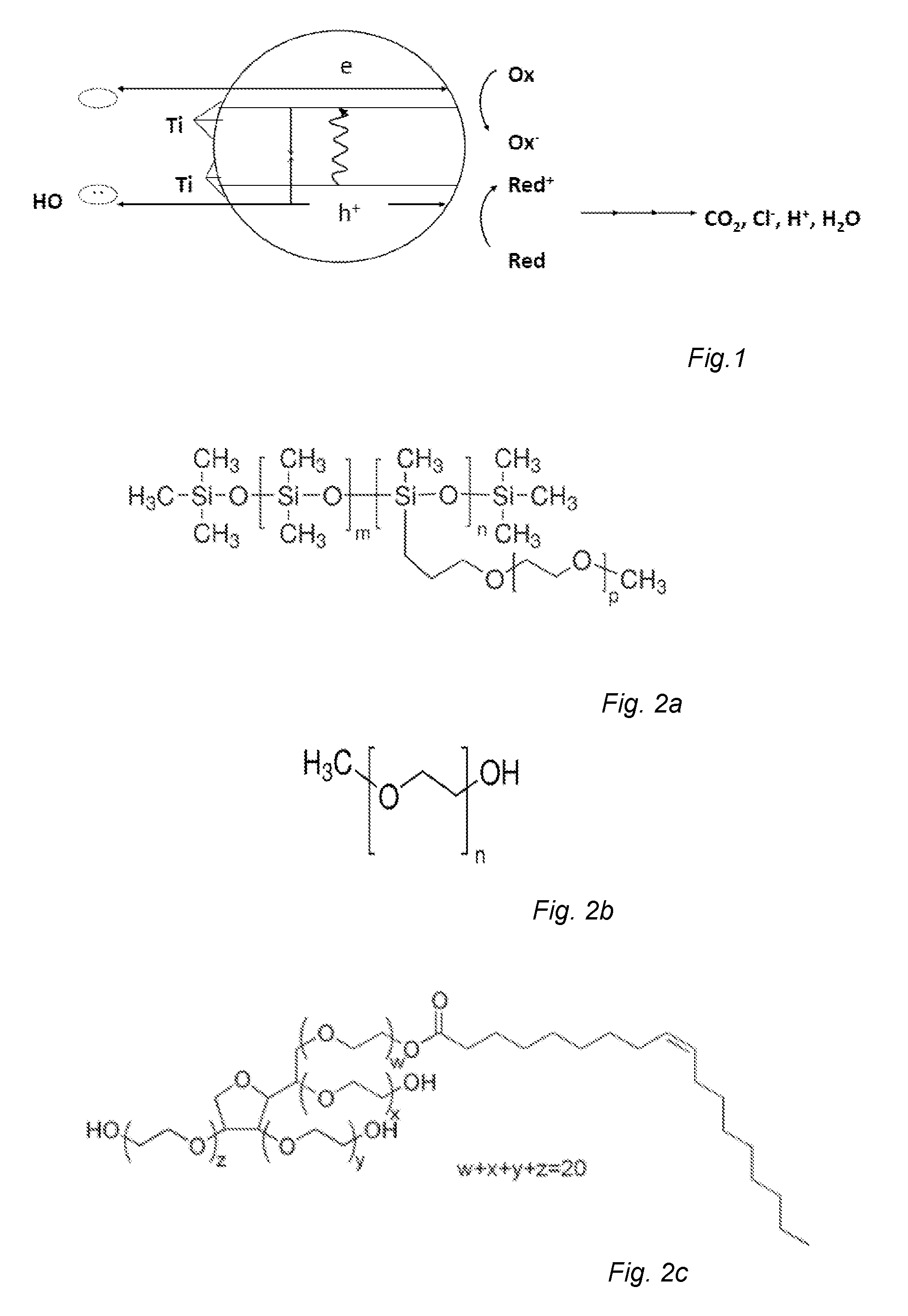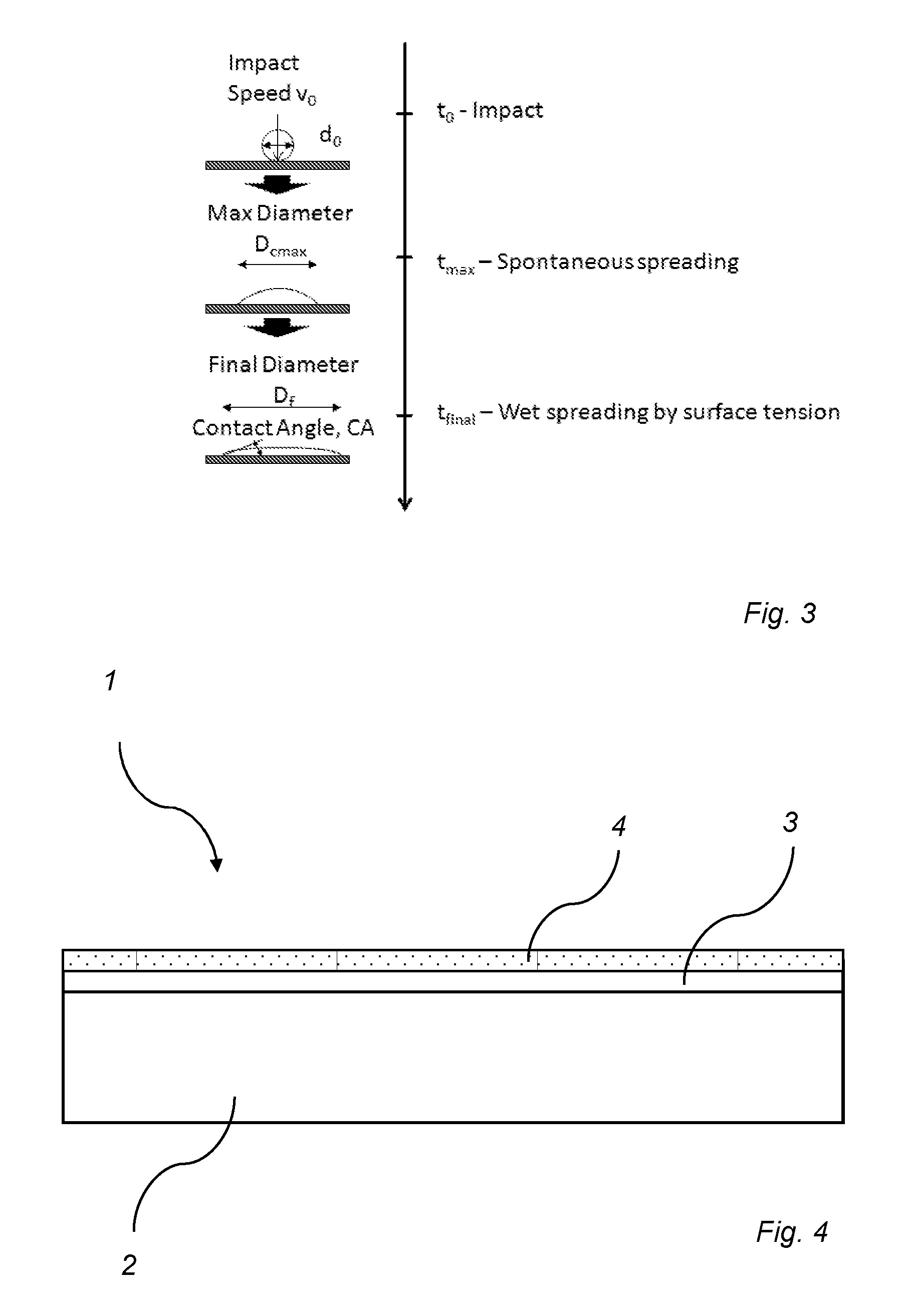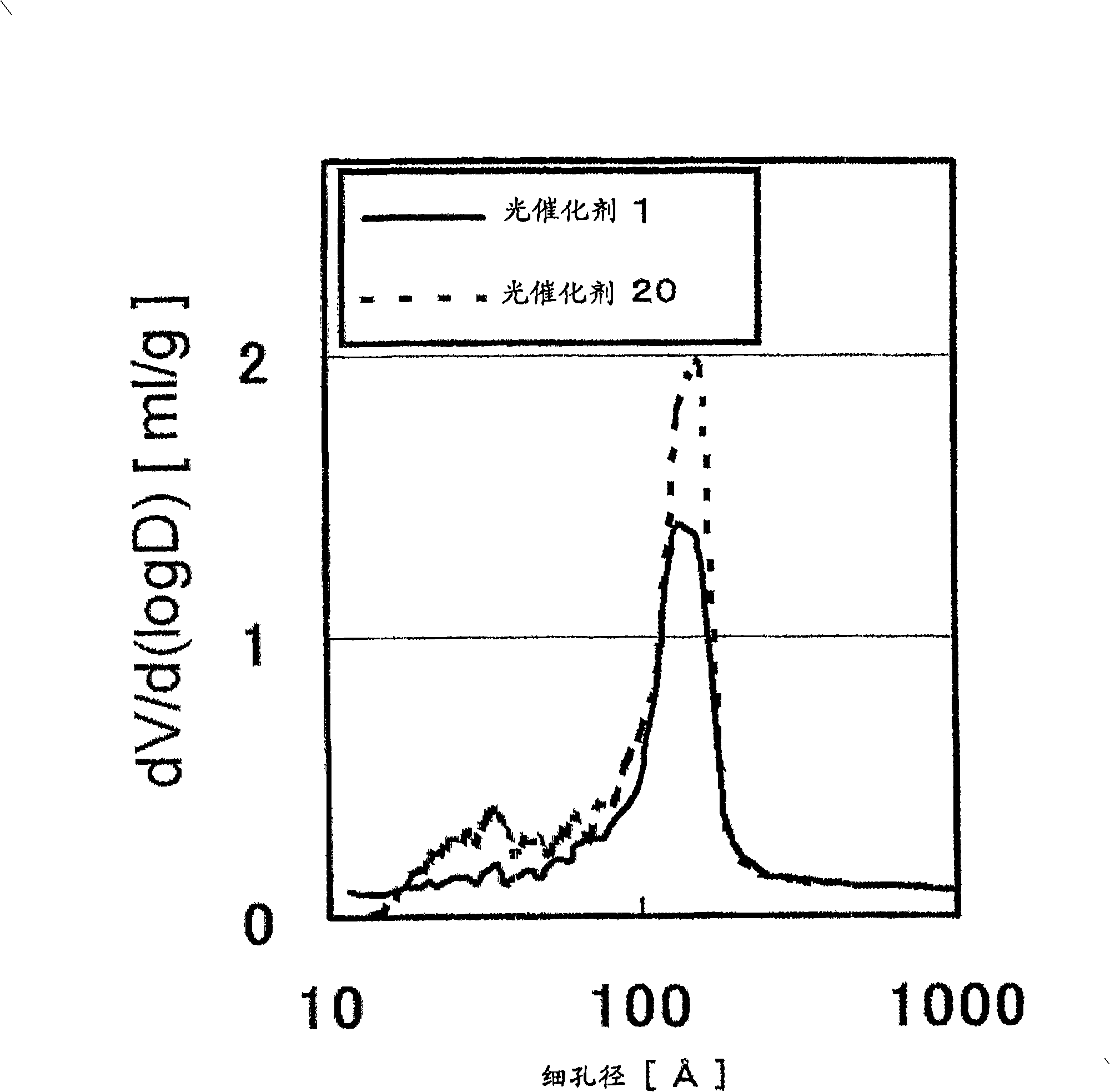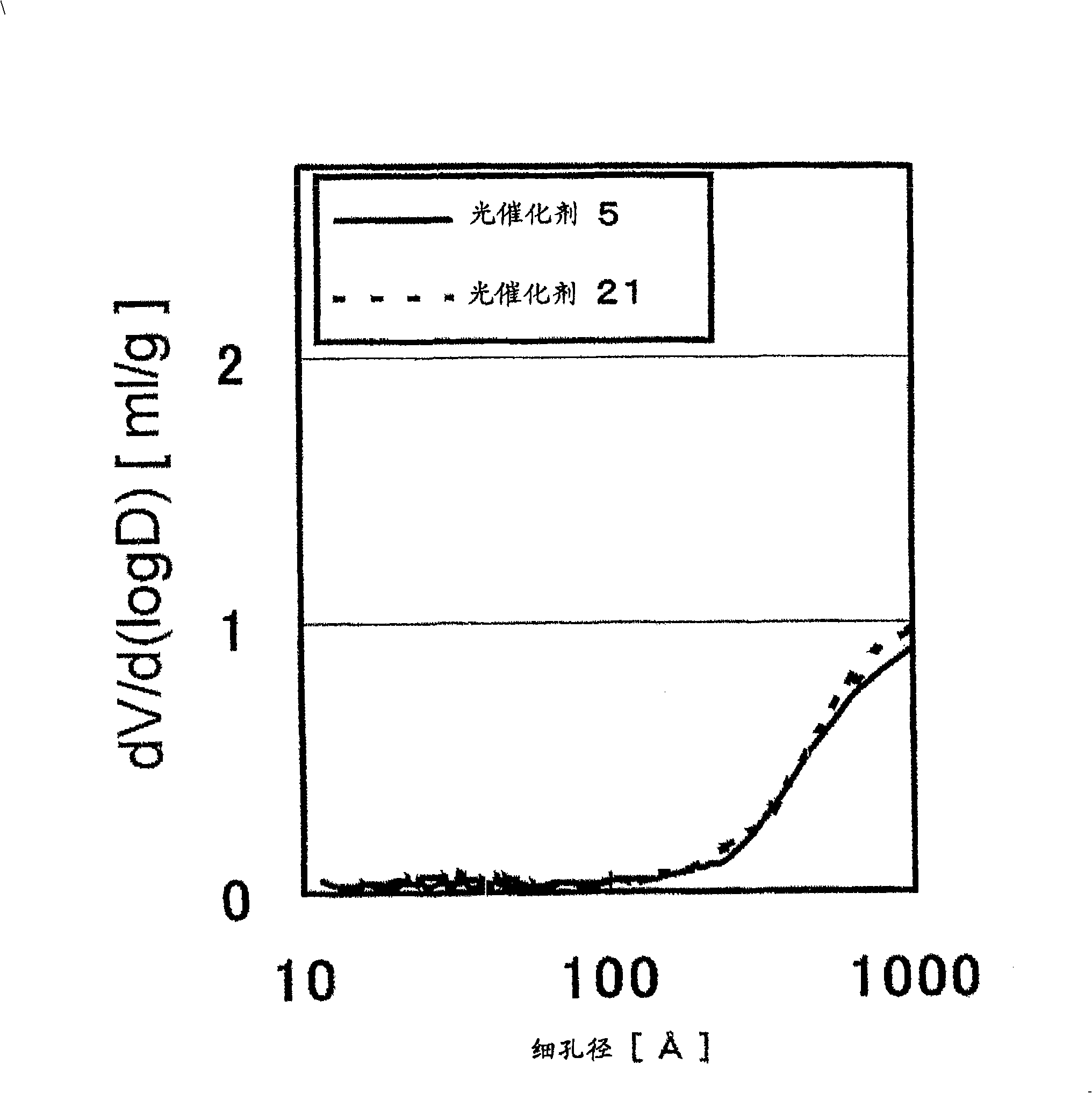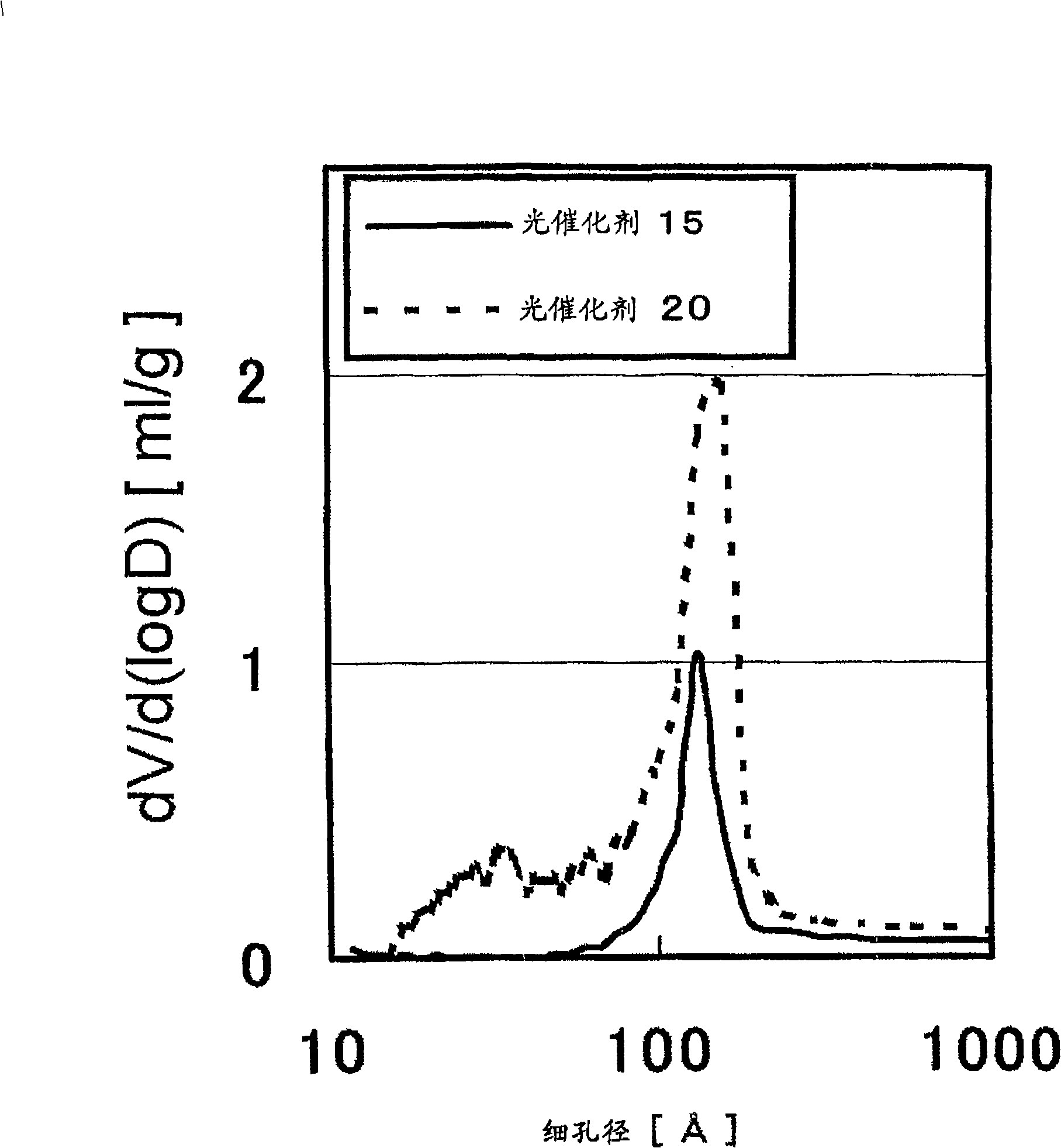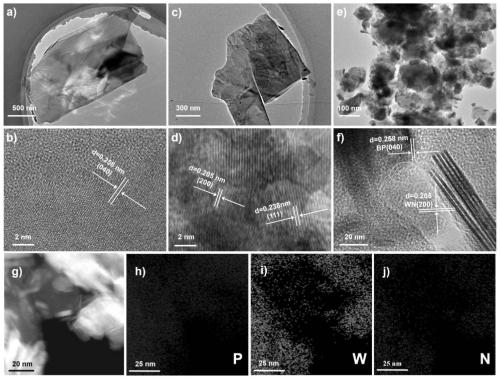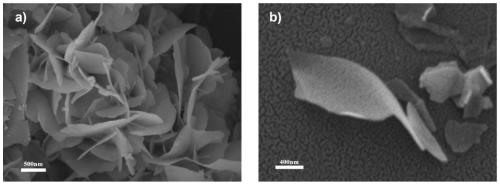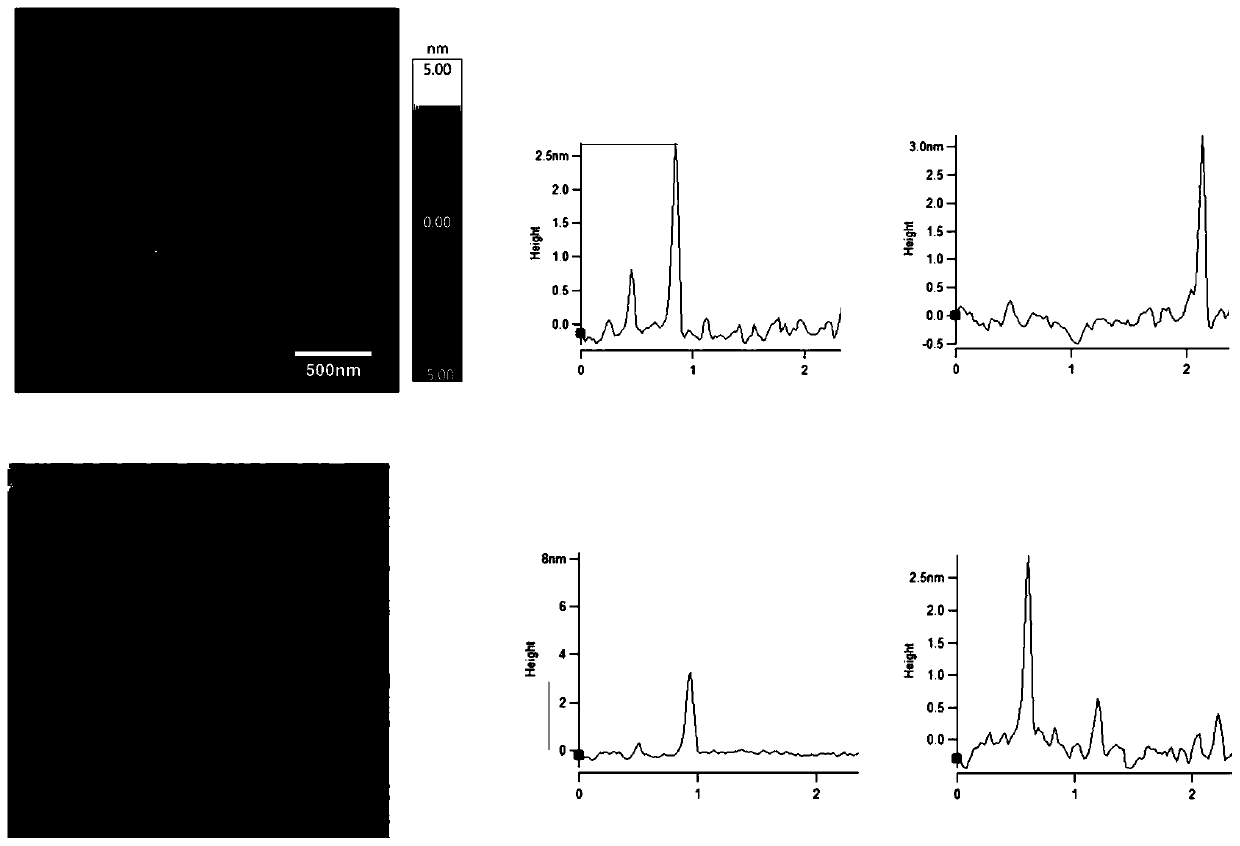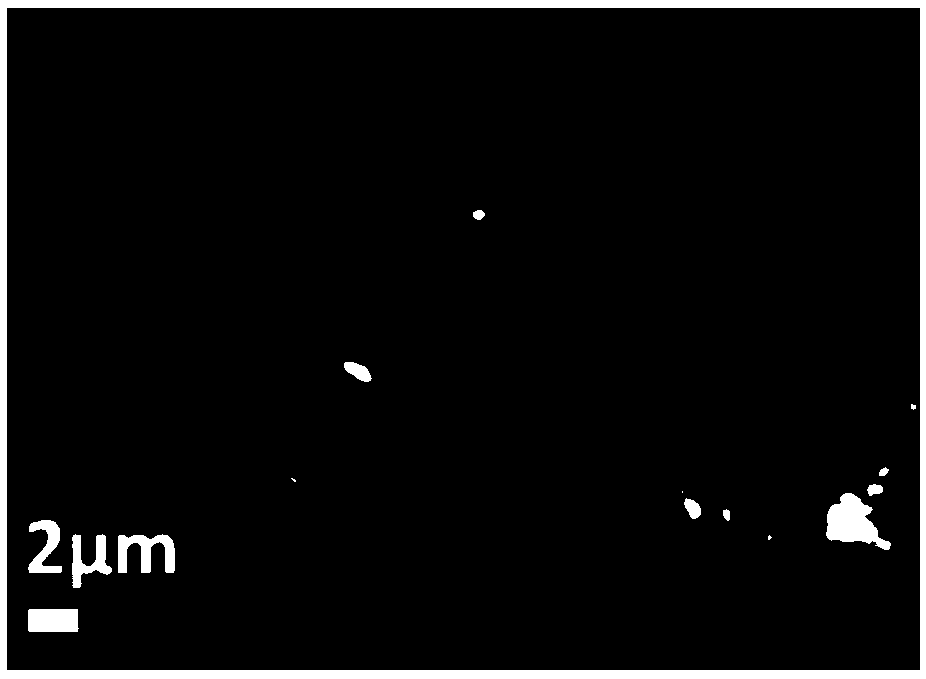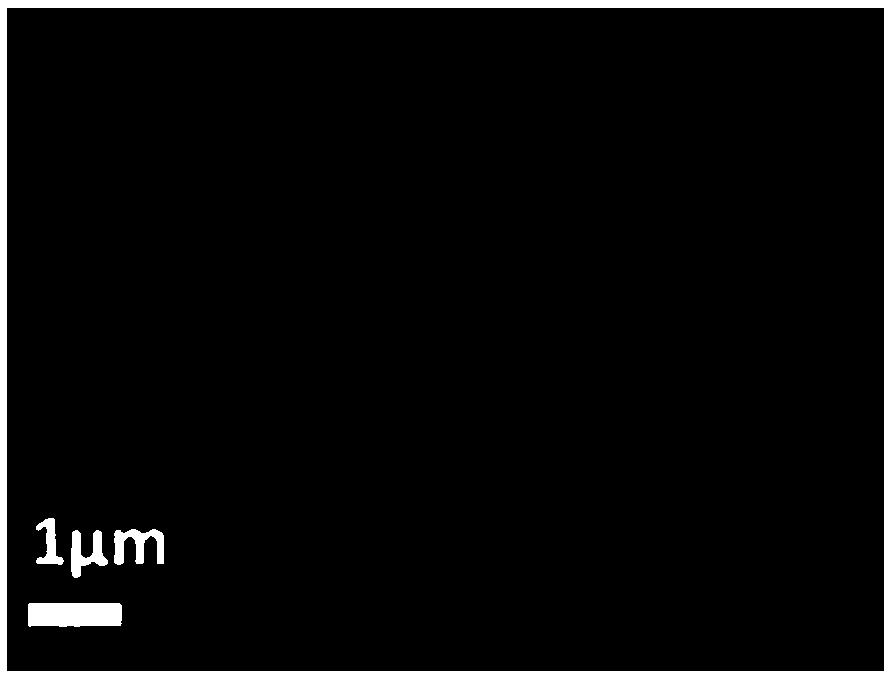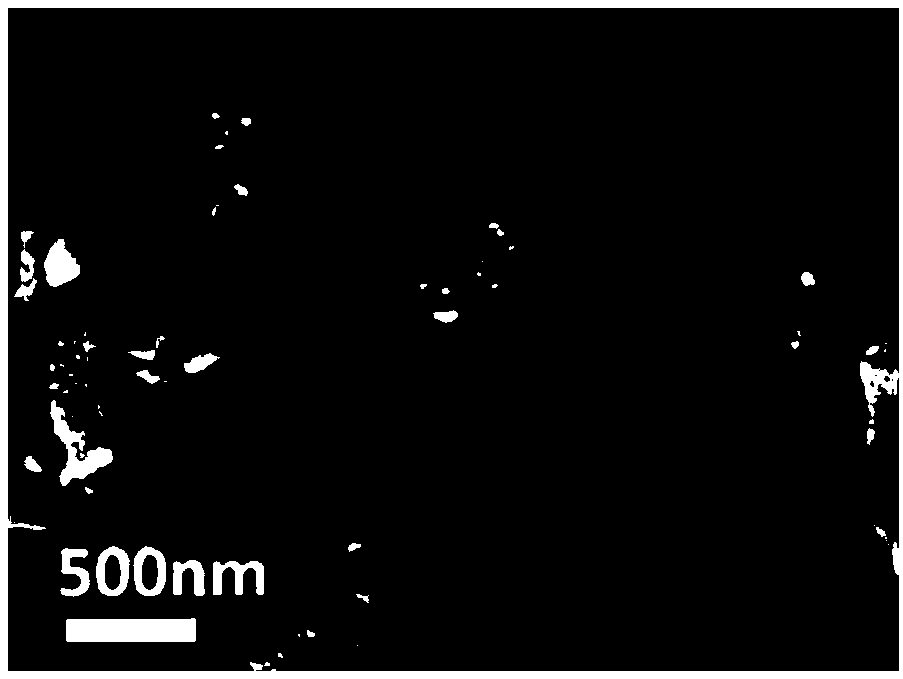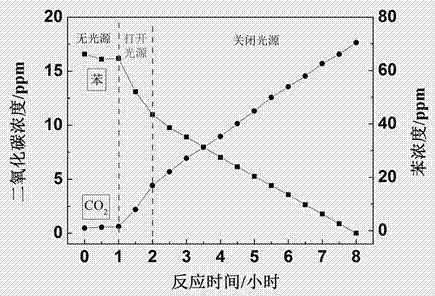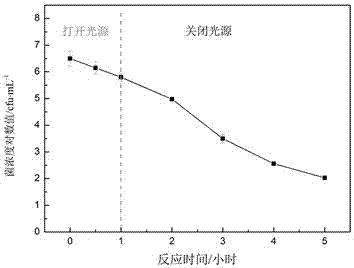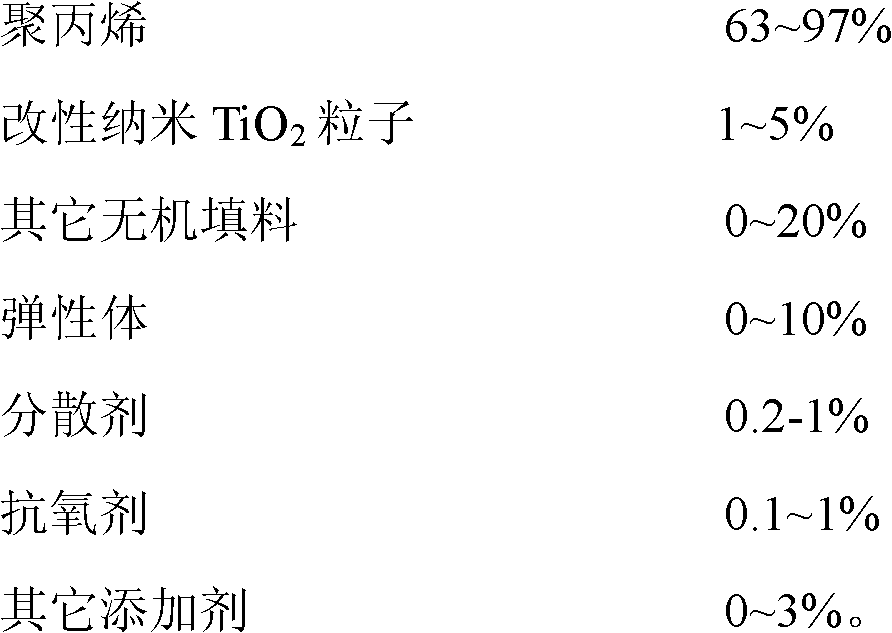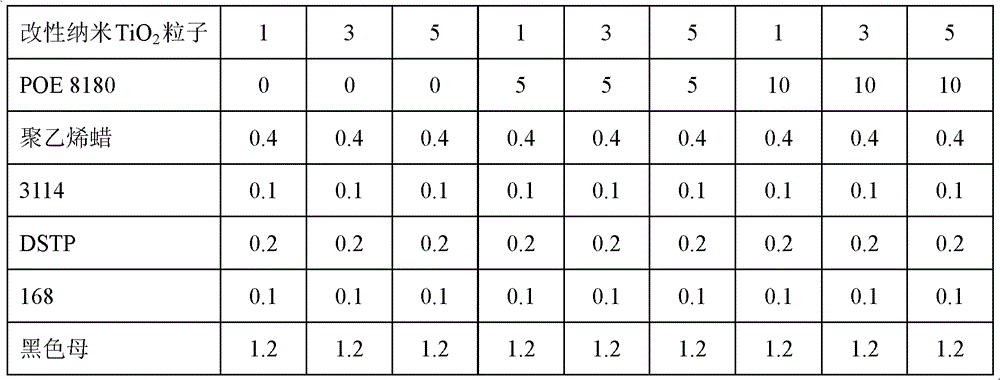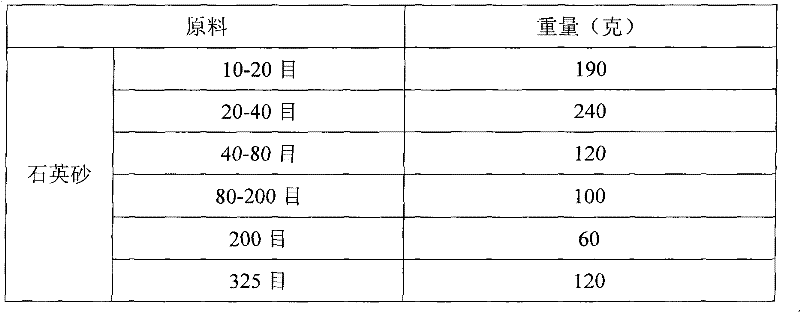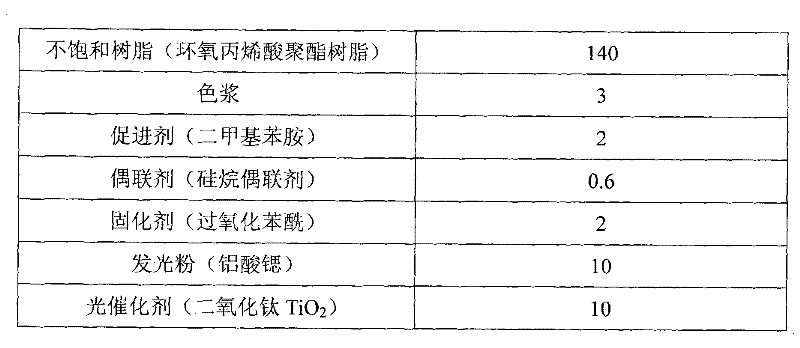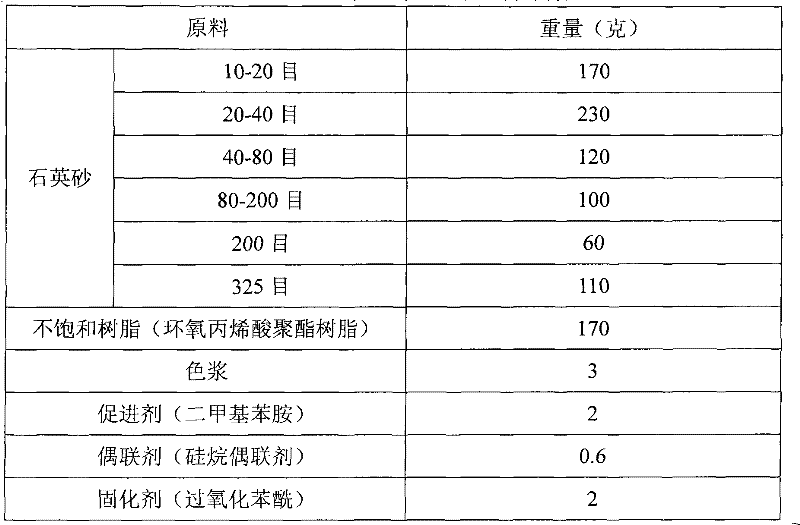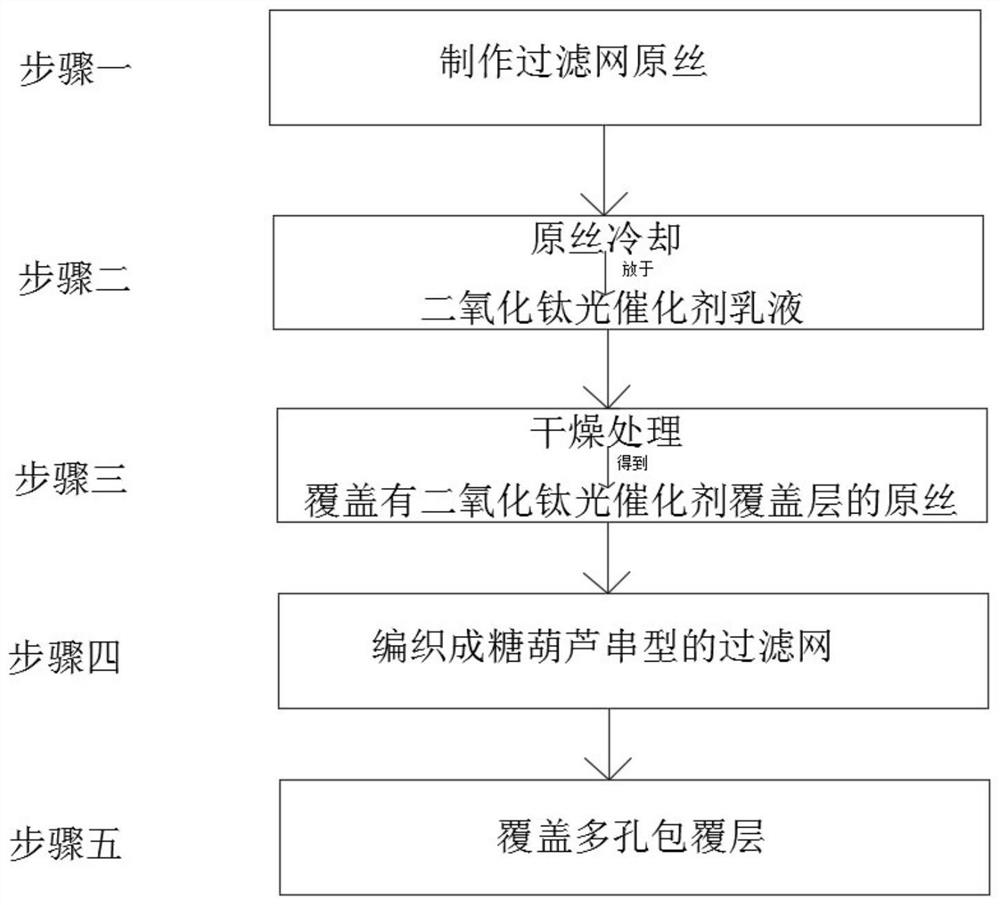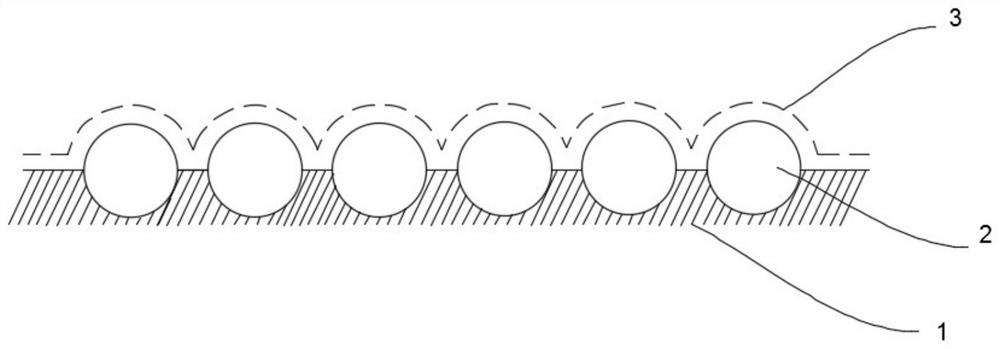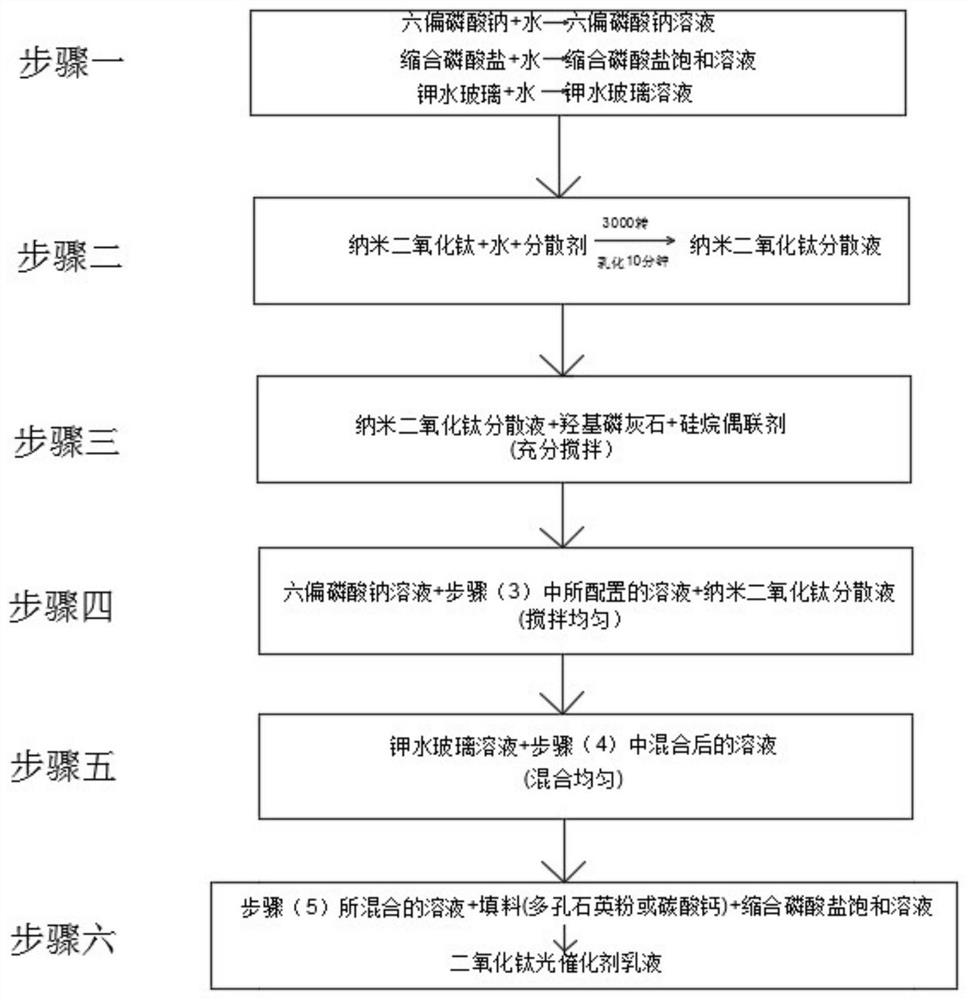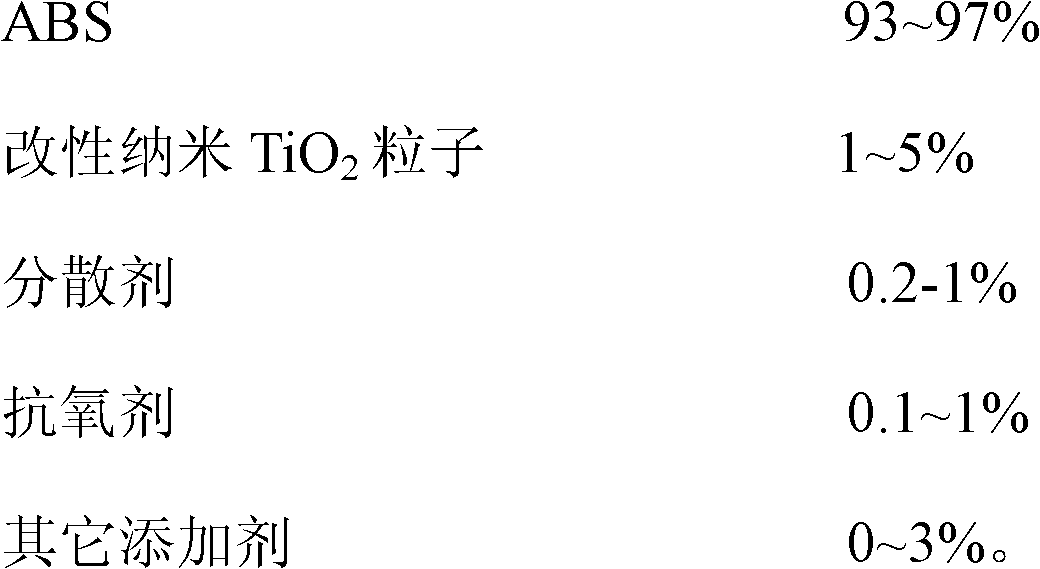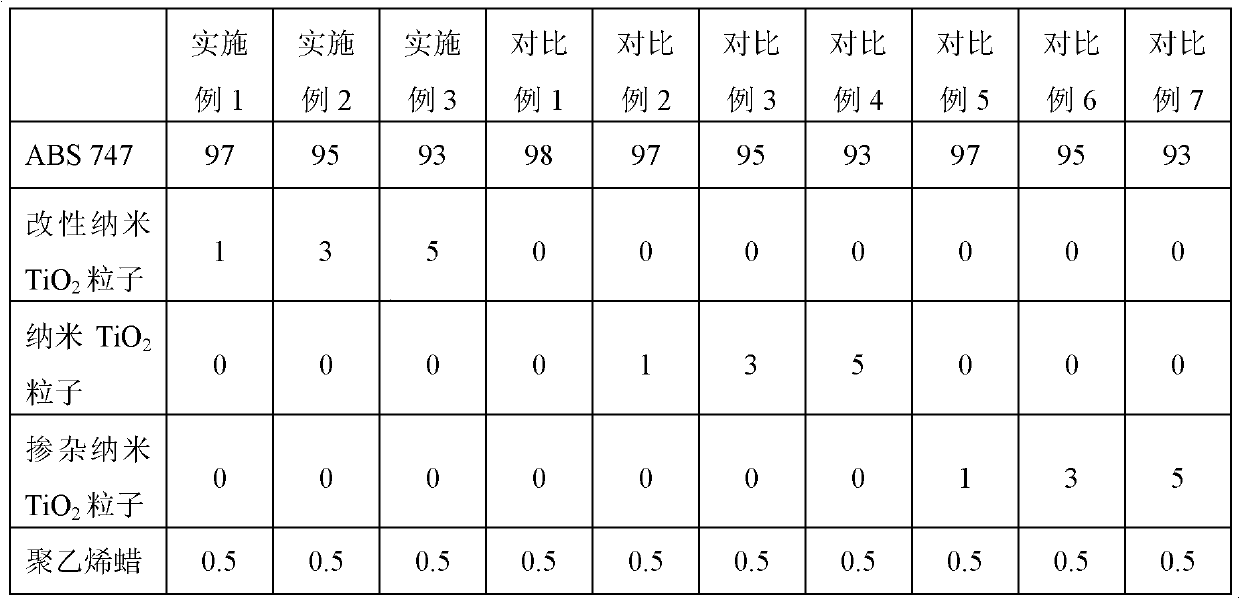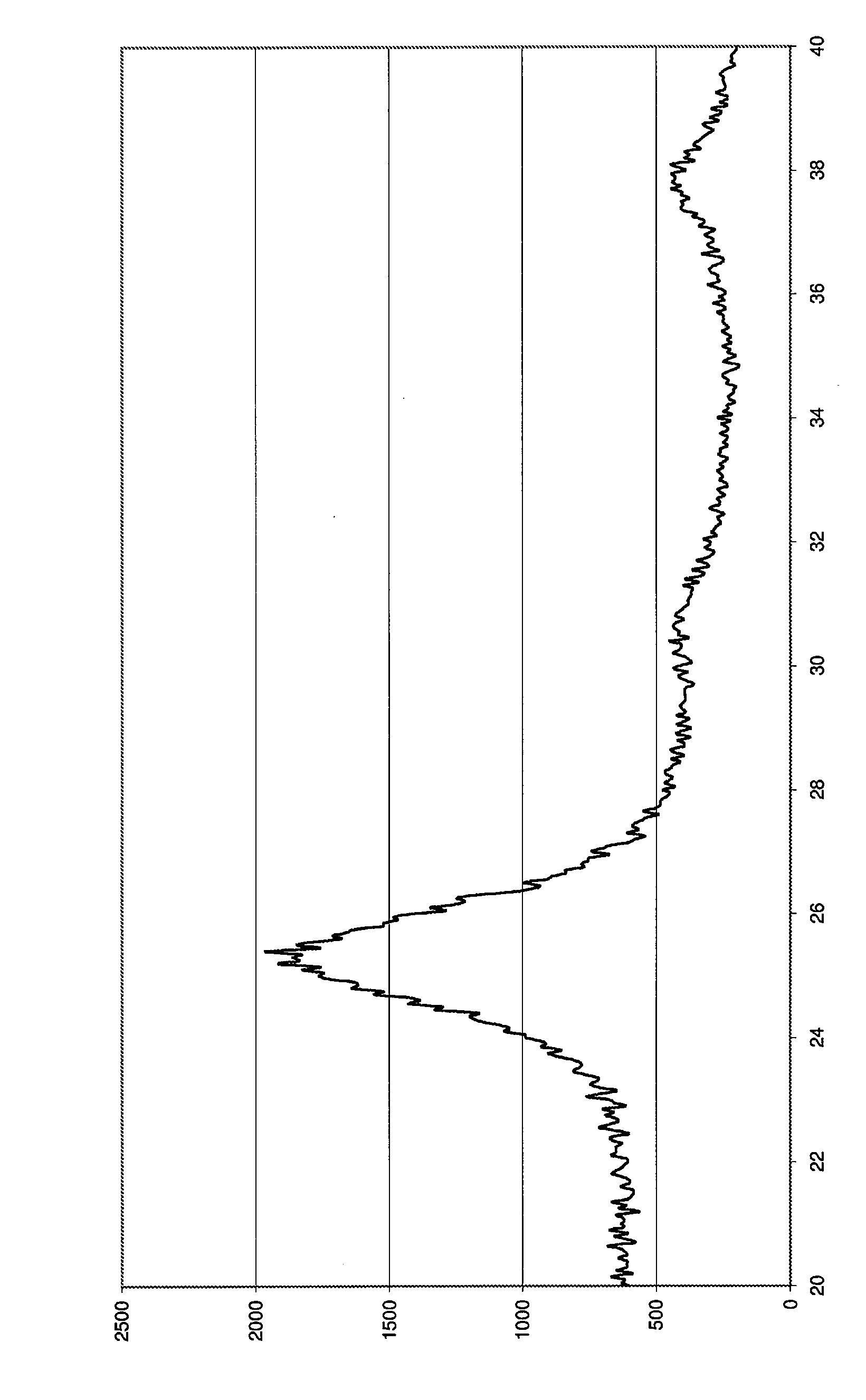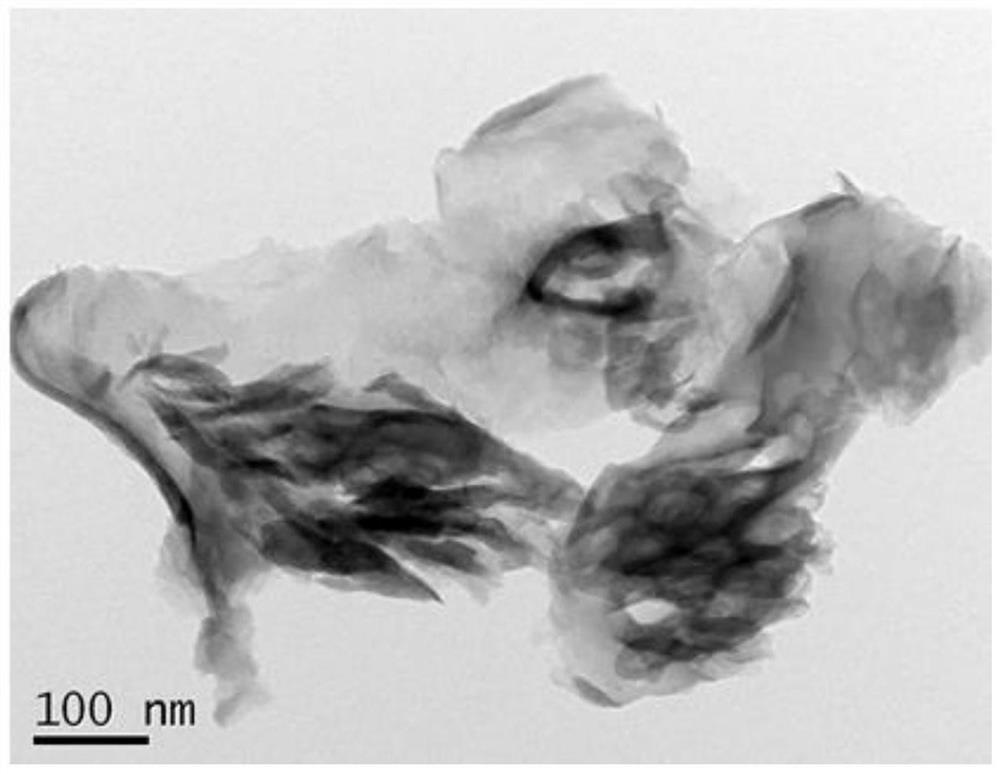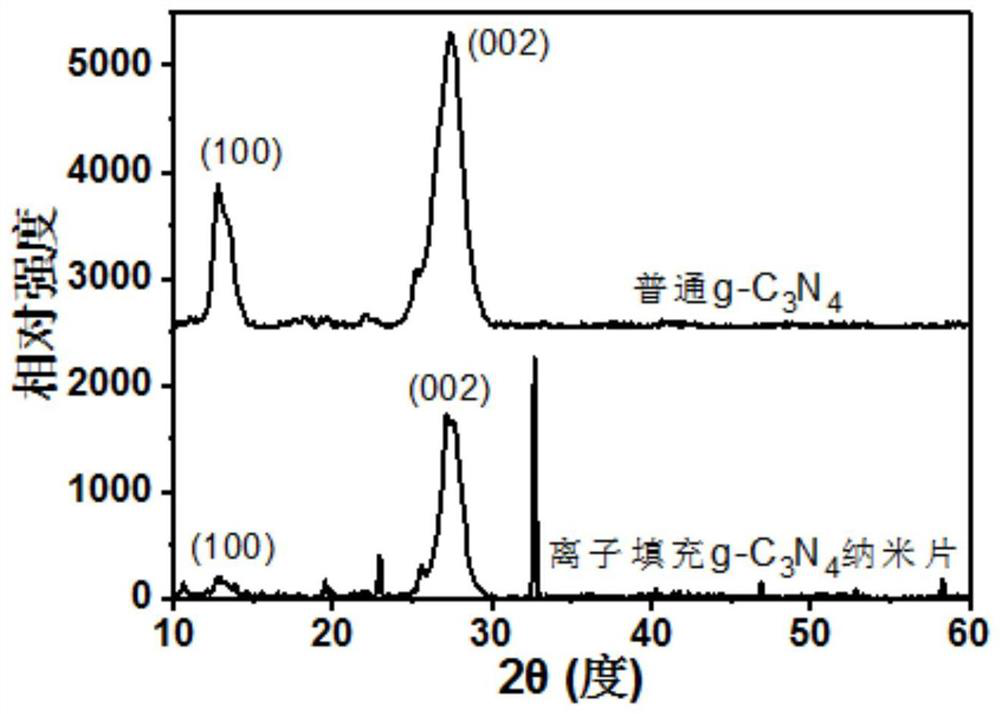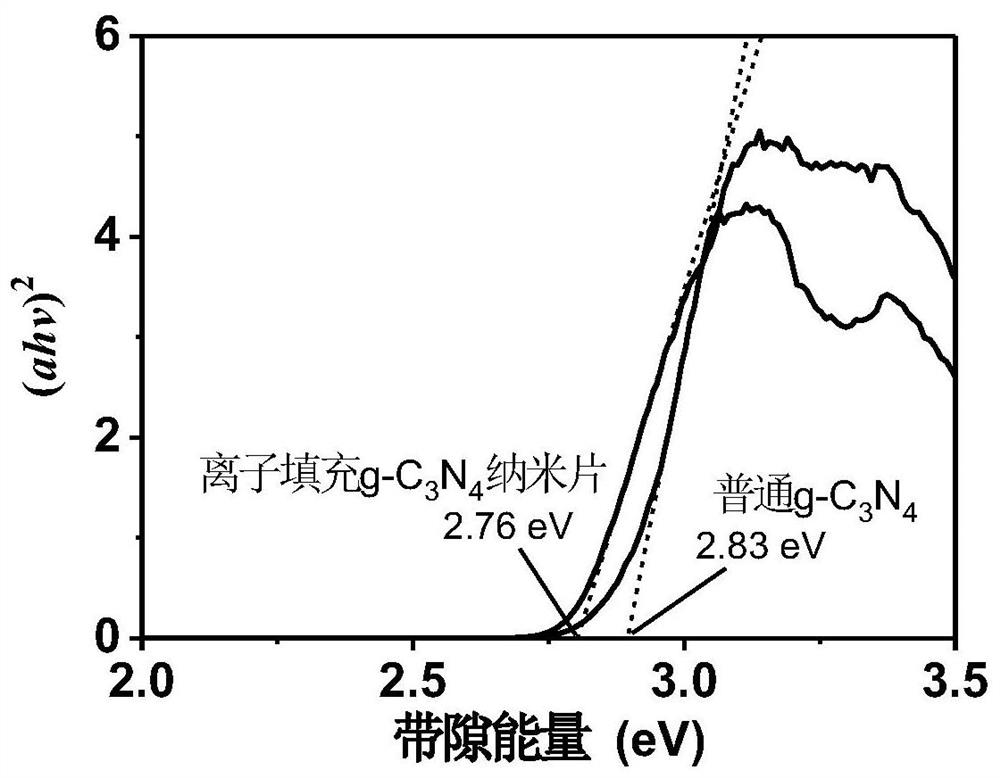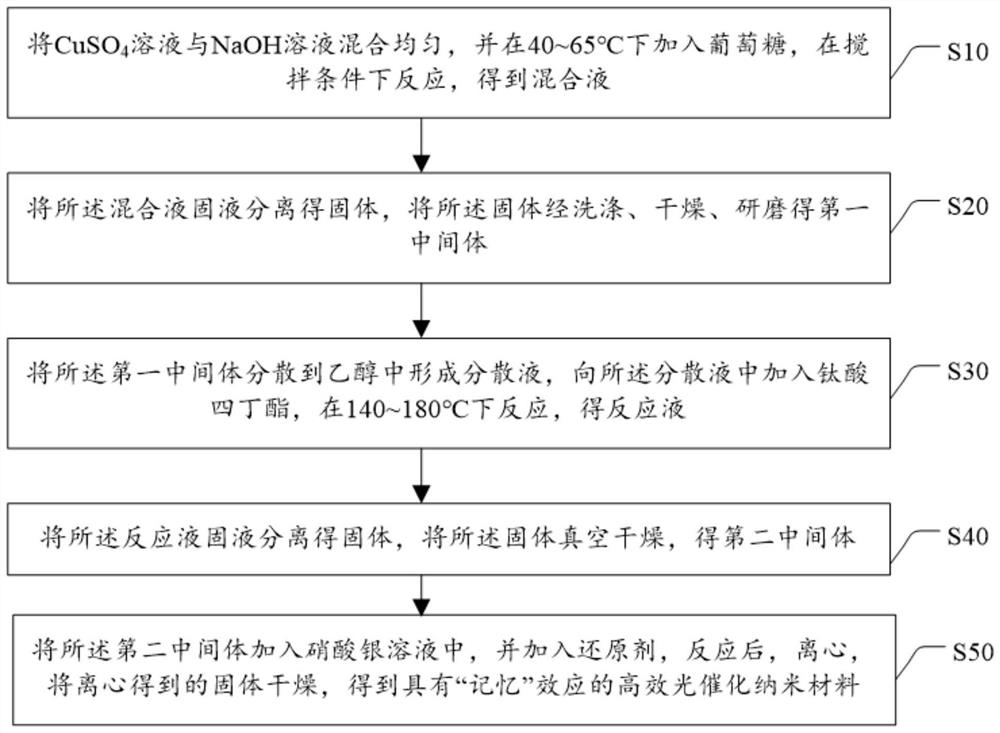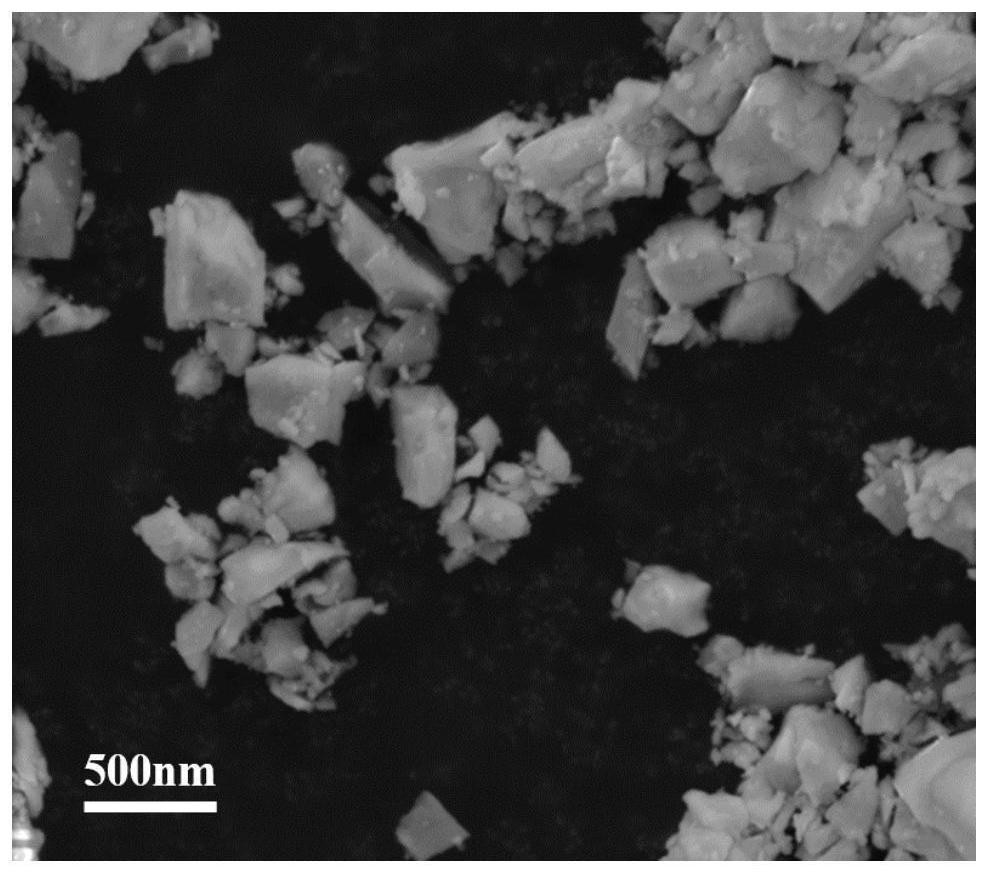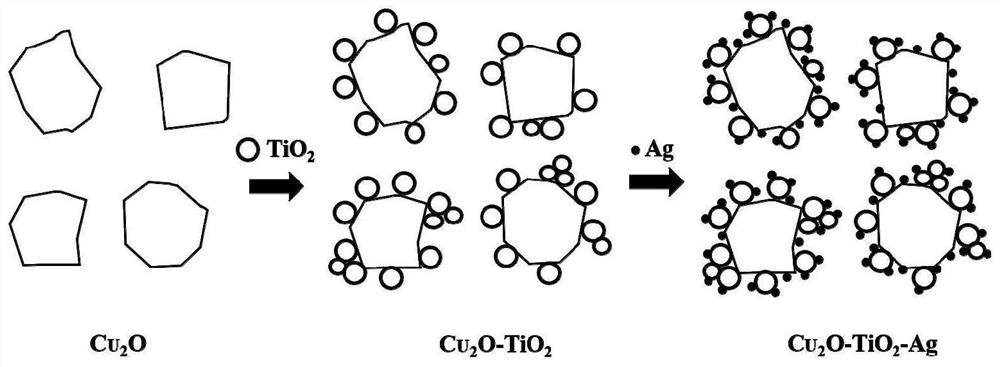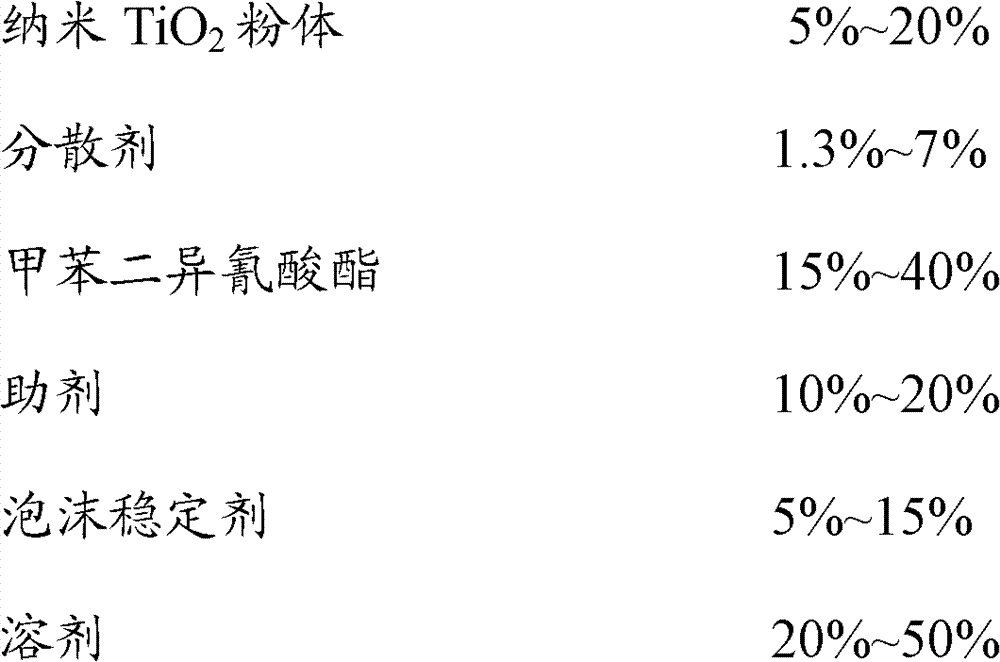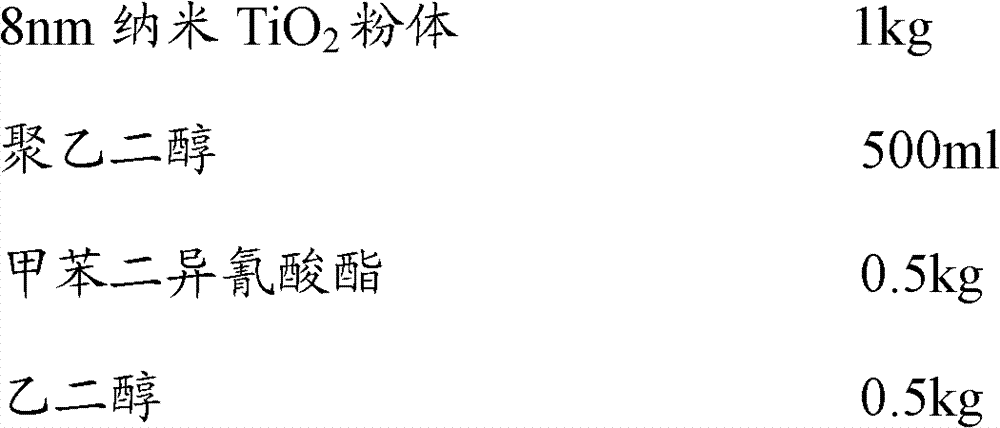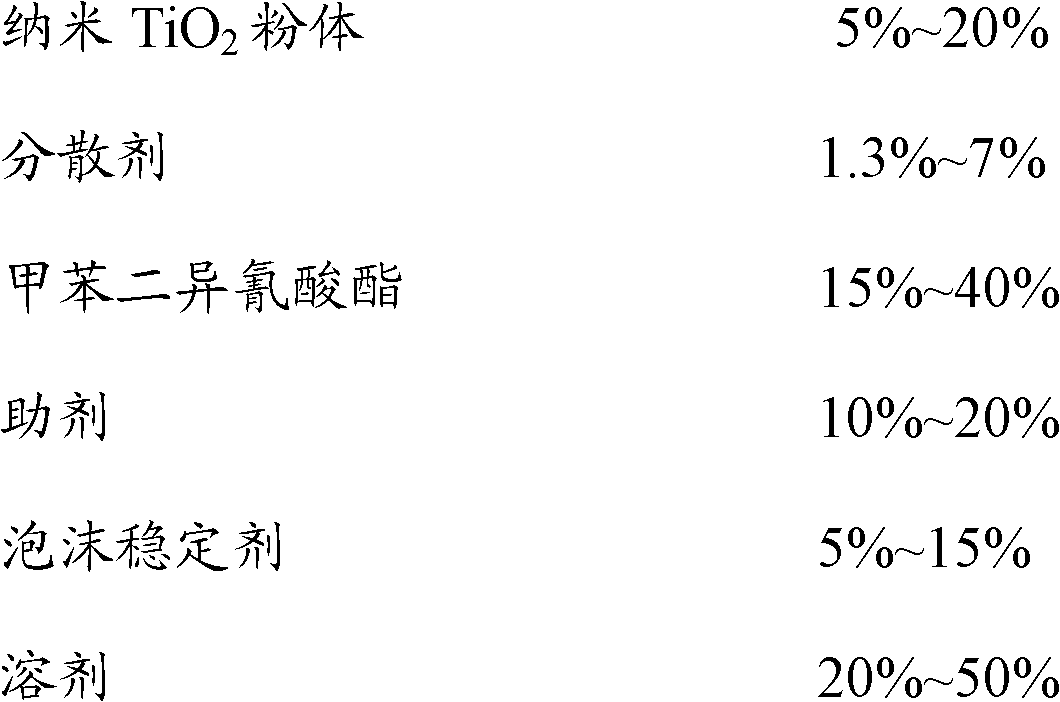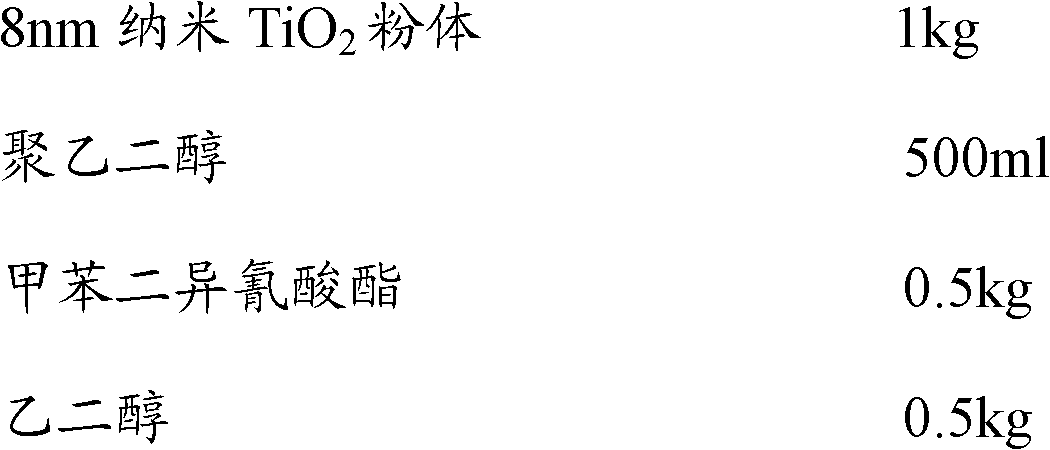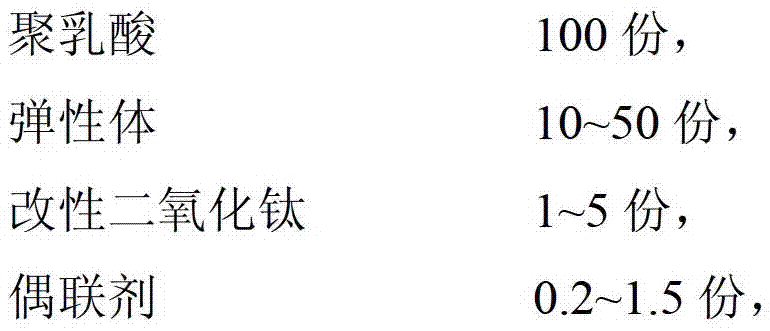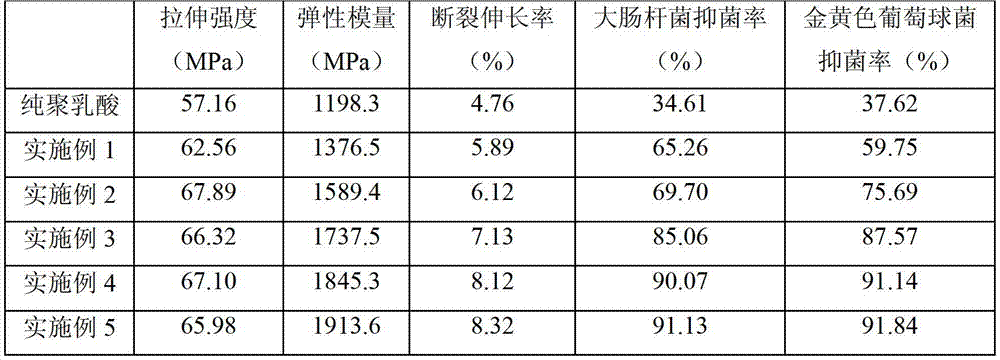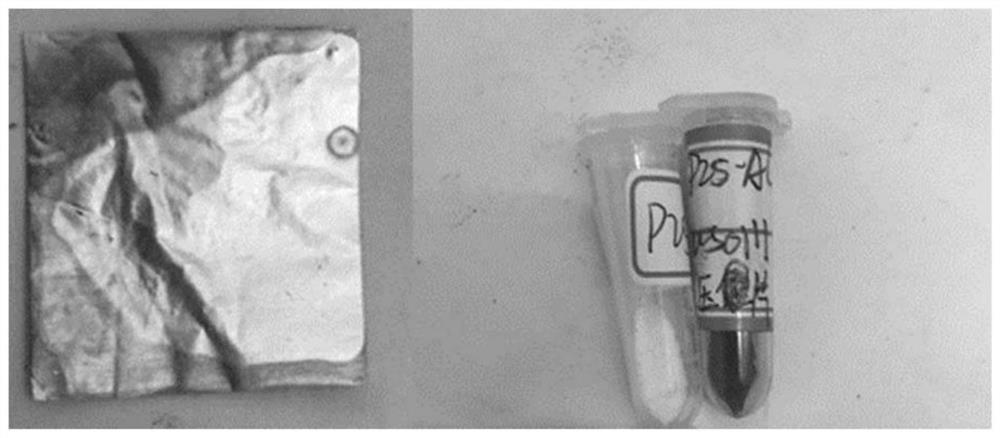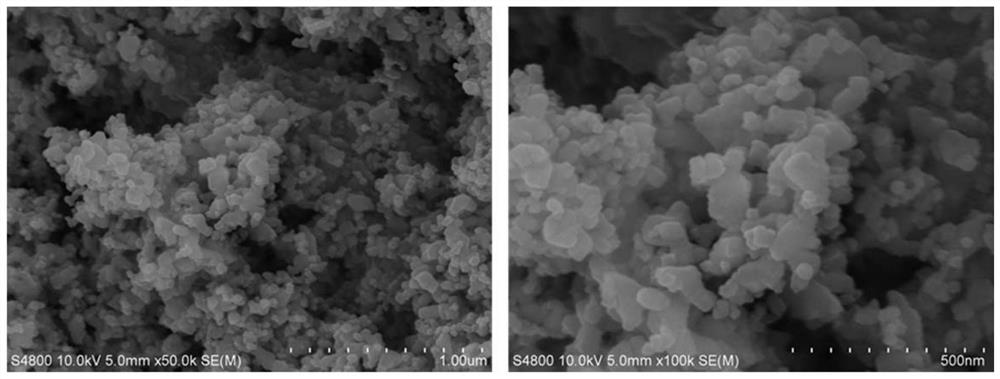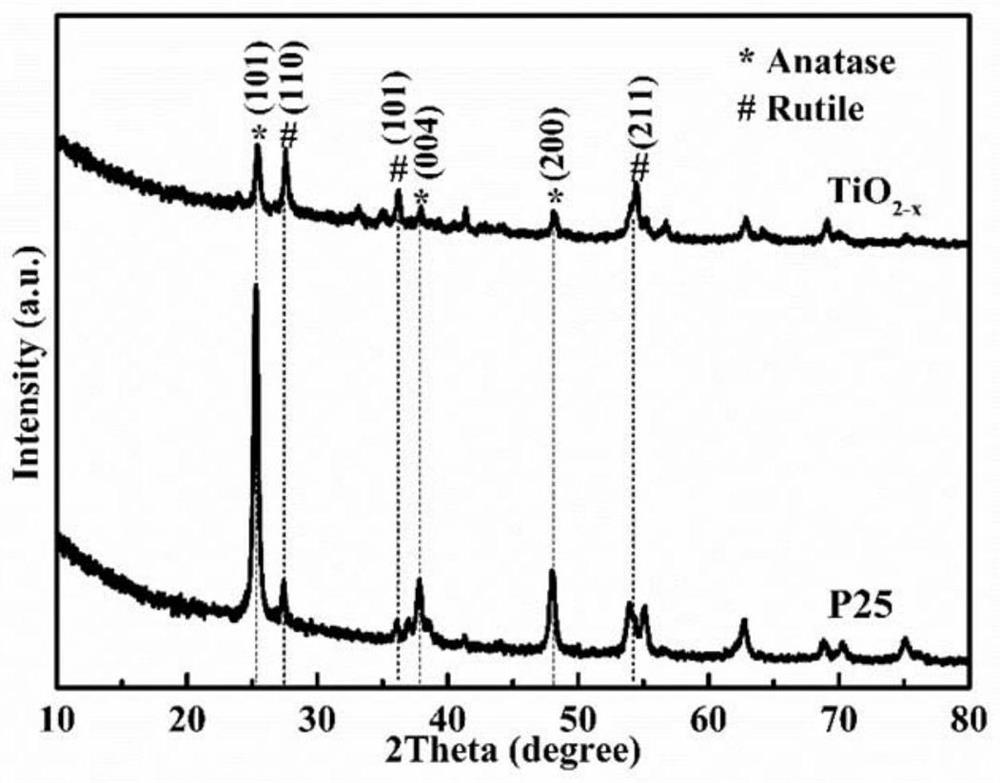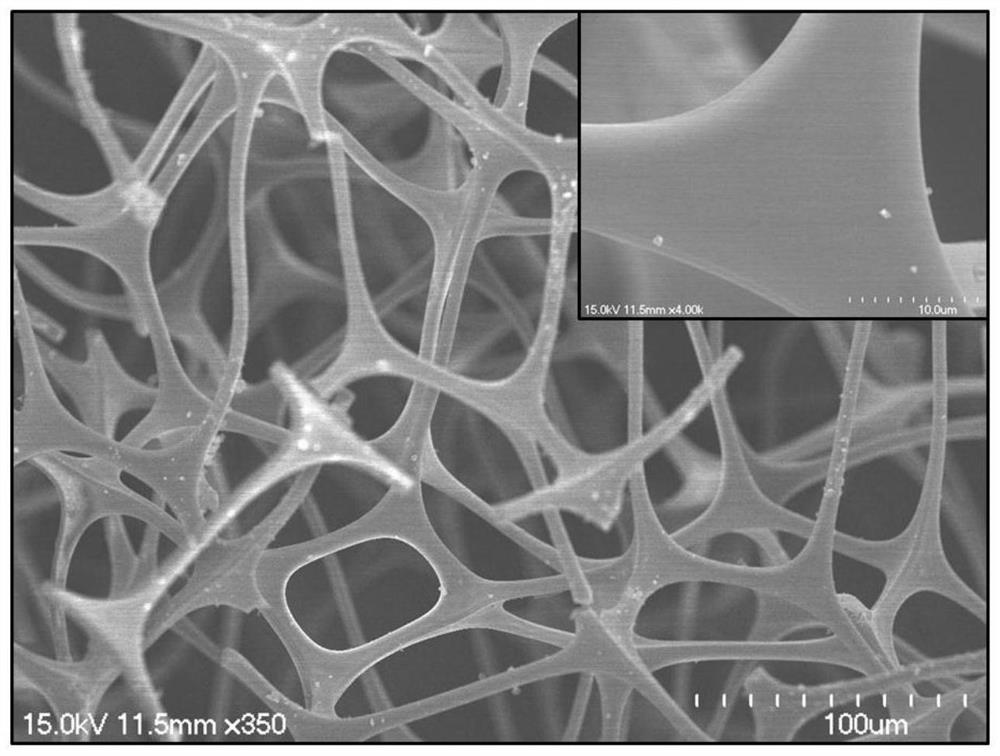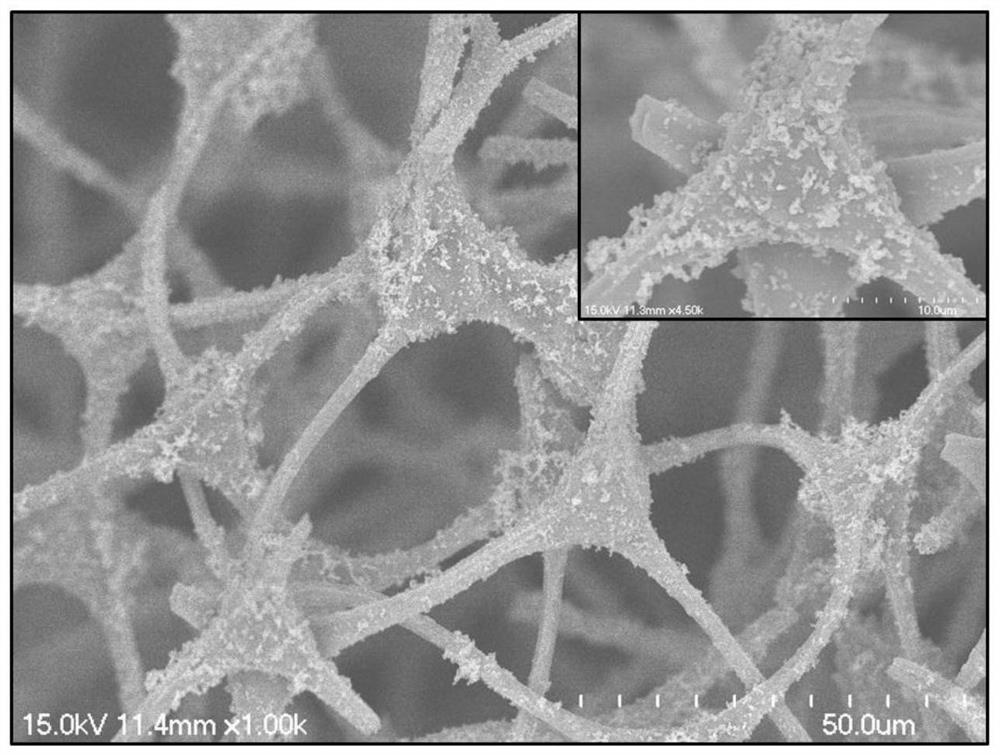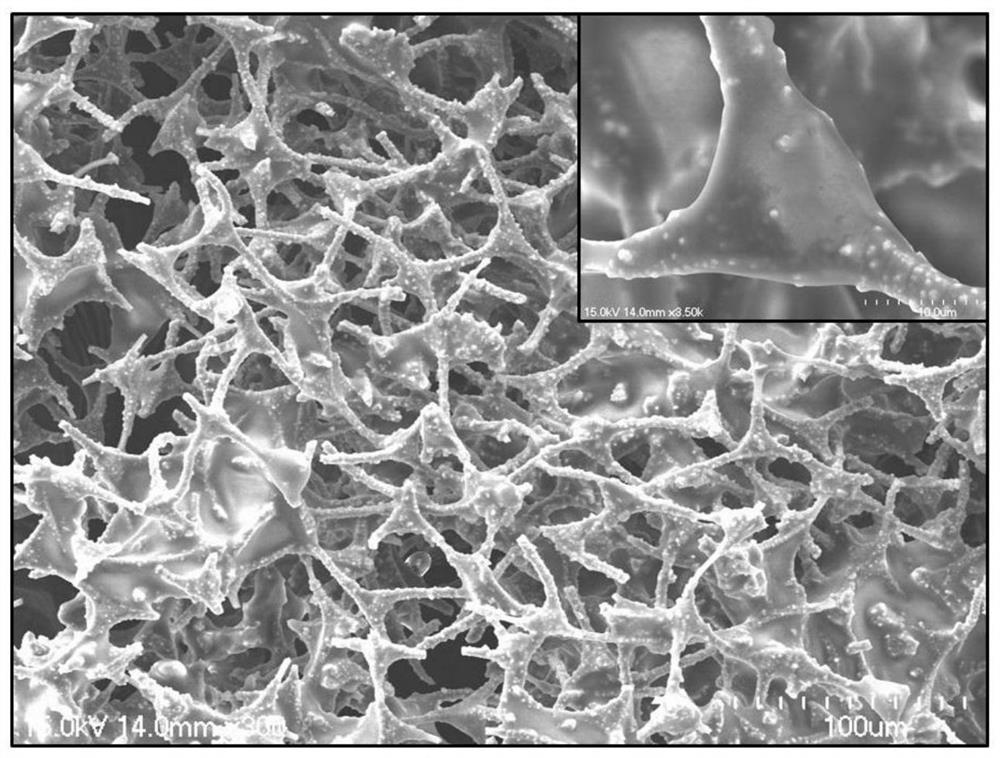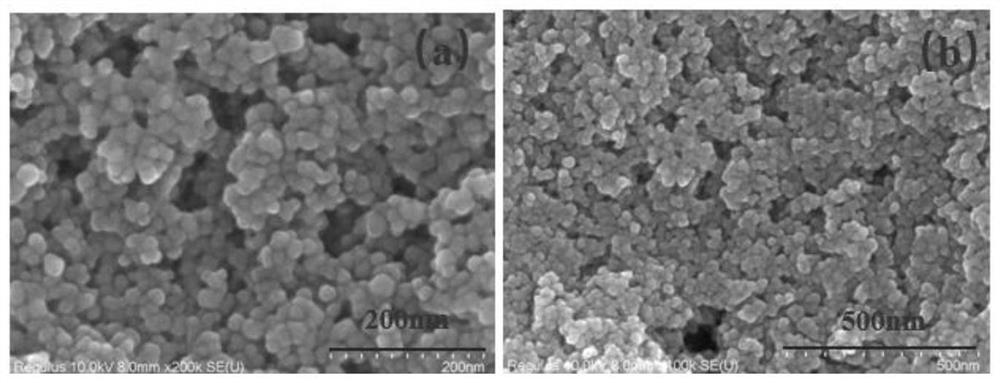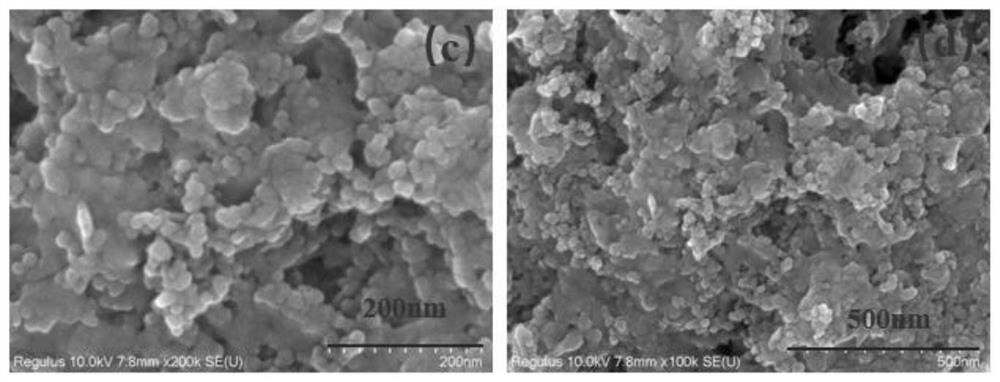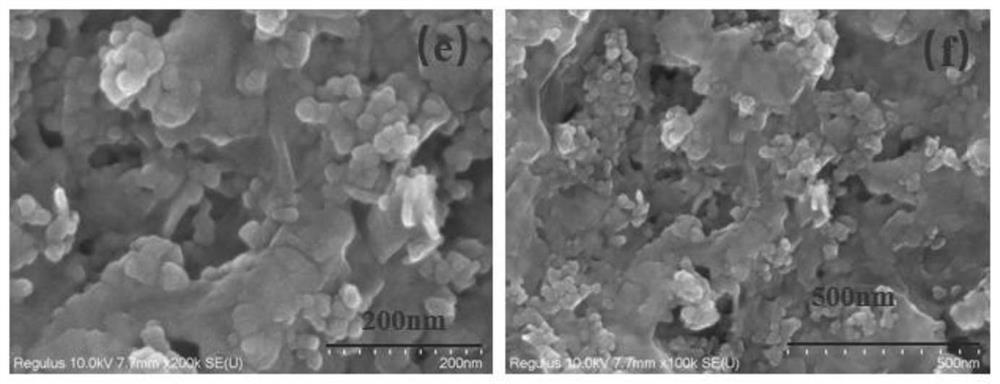Patents
Literature
32results about How to "Maintain photocatalytic activity" patented technology
Efficacy Topic
Property
Owner
Technical Advancement
Application Domain
Technology Topic
Technology Field Word
Patent Country/Region
Patent Type
Patent Status
Application Year
Inventor
Silver phosphate antibacterial modified titanium dioxide composite particle and its preparation method and use
An antibacterial composite TiO2 particle modified by silver phosphate for paint, ceramics, rubber, etc. is prepared from nanometre-class or submicron-class TiO2 particle as kernel through coating SiO2 layer, alumina layer, or SiO2-alumina layer, and coating silver phosphate layer. Its advantages are high purity dispersity and sure antibacterial action.
Owner:中山市华铿喷涂有限公司 +1
Solar glass self-cleaning antireflection paint and production method thereof
The invention discloses solar glass self-cleaning antireflection paint and a production method thereof. In the solar glass self-cleaning antireflection paint, poly silicon dioxide is used as a main antireflection component, low reflection titanium dioxide is used as an auxiliary antireflection component and a photocatalyst, antimony doped tin oxide, titanium phosphate, silicon phosphate, phosphoric acid and antimony doped tin phosphate are used as a self-cleaning synergist, an antistat and an antireflection membrane enhancer, and deionized water is used as a solvent. The production method comprises the step: a porous silicon dioxide shell generated through ethyl silicate hydrolysis is covered with the anatase titanium dioxide photocatalyst, the antimony doped stannic oxide antistat and other synergist components. The problem that antireflection performance and the self-cleaning performance of conventional solar glass self-cleaning antireflection paint can offset each other is solved, the power generating efficiency of a solar cell can be improved and stabilized greatly, and the maintenance management cost of the solar cell can be reduced.
Owner:TIANJIN VOCATIONAL INST
An antibacterial polylactic acid composite material and a preparing method thereof
ActiveCN104072955AIncrease profitImprove antibacterial propertiesPigment treatment with organosilicon compoundsElastomerPolymer science
The invention belongs to the technical field of polymer materials and relates to an antibacterial polylactic acid composite material and a preparing method thereof. The composite material is prepared from following components by weight: 100 parts of polylactic acid, 10-50 parts of an elastomer, 1-5 parts of modified titanium oxide, 0.2-1.5 parts of a coupling agent, 0.2-1.5 parts of a lubricant and 0.3-1.5 parts of an antioxidant. The nanometer titanium is adopted as a substrate and a certain amount of nanometer zinc oxide is doped, so that the light utilization rate of the titanium oxide is increased, and the composite material can maintain a high antibacterial property under actions of weak visible light. By utilization of a simple preparation process, the polylactic acid composite material with good mechanical properties, good toughness and a good antibacterial property is obtained.
Owner:SHANGHAI GENIUS ADVANCED MATERIAL (GRP) CO LTD
Carbon nitride-supported molybdenum nitride nanoparticle photocatalyst, and preparation method and application thereof
InactiveCN108786888AEasy to separateEasy constructionPhysical/chemical process catalystsHydrogen productionPhotocatalytic water splittingDecomposition
The invention discloses a carbon nitride-supported molybdenum nitride nanoparticle photocatalyst, and a preparation method and an application thereof. The preparation method comprises the steps: firstly, preparing ultra-thin precursors of CN and Mo2N, and then preparing a Mo2N aqueous solution and a CN ethanol dispersion solution; and then dropping the CN ethanol dispersion solution into the Mo2Naqueous solution in a 70 DEG C oil bath, stirring and mixing, then centrifuging, washing and drying to obtain the carbon nitride-supported molybdenum nitride nanoparticle photocatalyst. The photocatalyst has the advantages of wide light absorption range, property of high decomposition of water to produce hydrogen, low electrical resistivity, fast current carrier transfer ability, high photogenerated current carrier separation ability, low current carrier recombination rate, good hydrogen evolution circulation stability and the like, is used for photocatalytic decomposition of water to producehydrogen, and has the highest hydrogen production rate reaching 0.89 [mu]mol.g<-1>.h<-1>. The preparation method has the advantages of simple operation, low cost and non-toxic used raw materials, andconforms to production of the concept of environmental protection.
Owner:SHANGHAI UNIVERSITY OF ELECTRIC POWER
Photocatalytic composition
ActiveUS20150102258A1Reduced photogreyingMaintain photocatalytic activityCatalyst protectionOrganic-compounds/hydrides/coordination-complexes catalystsPhotochromismTio2 particle
The present disclosure relates to a photocatalytic composition comprising photocatalytic titanium dioxide particles being dispersed in a continuous phase, and at least one anti-photogreying additive, wherein said at least one anti-photogreying additive is adapted to limit photogreying of said titanium dioxide particles while the photocatalytic activity of said titanium dioxide particles is maintained, and wherein the photo greying index (ΔL) of said composition is less than 6.
Owner:VAELINGE PHOTOCATALYTIC AB
In-situ carbon-coated copper-nickel alloy material photocatalyst and preparation method and application thereof
ActiveCN110624550AEasy to separateLower barriers to migrationCatalyst activation/preparationCarbon monoxidePtru catalystHigh carbon dioxide
The invention discloses an in-situ carbon-coated copper-nickel alloy material photocatalyst and a preparation method and an application thereof. The preparation method comprises the steps: firstly, acopper-nickel bimetallic organic framework (CuNiBTC) is prepared through a hydrothermal method, and a CuNiBTC material is obtained through centrifugation, washing and drying; and vacuum sealing is carried out on a sample by using a quartz tube, and calcining is carried out at high temperature to obtain the in-situ carbon-coated copper-nickel alloy nanoparticle photocatalyst. The in-situ carbon-coated copper-nickel alloy nanoparticle photocatalyst has the advantages of wide light absorption range, high carbon dioxide reduction performance, low electrical resistivity, rapid carrier transfer capability, high photon-generated carrier separation capability, low carrier recombination rate and good carbon dioxide conversion cycle stability, is used for near-infrared light catalytic reduction of carbon dioxide, and has the carbon monoxide precipitation rate up to 11.205 [mu]mol*g<-1>*h<-1>. The preparation method is simple to operate and low in cost, the used raw materials are non-toxic, and the product has a certain economic value and conforms to production of the environmental protection concept.
Owner:SHANGHAI UNIVERSITY OF ELECTRIC POWER
Method for preparing SO42-/TiO2 through supercriticalo exsiccation
InactiveCN1562478AHigh crystallinityImprove photocatalytic activityCatalyst activation/preparationSupercritical dryingAlcohol
A process for preparing the catalyst SO4 / TiO2 by supercritical drying method includes slowly dropping the sulfuric acid-alcohol-water solution in butyl titanate-alcohol solution to obtain TiO2 sol, ageing to obtain wet gel, mixing it with alcohol, staying in inertial atmosphere and supercritical condition for 0.5-8 hr, cooling and calcining. Its adantages are high specific surface area and photocatalytic activity, and long service life.
Owner:SHANGHAI NORMAL UNIVERSITY
Preparation method for adsorption photochemical catalysis composite material
InactiveCN106582581AImprove surface hydrophilicityGood dispersionMaterial nanotechnologyPhysical/chemical process catalystsMuffle furnaceChemistry
The invention discloses a preparation method for an adsorption photochemical catalysis composite material. The preparation method includes the specific steps that (1) a cellular activated carbon gridding surface and a cellular channel inner surface are acidized with a dilute acid solution, washed with water and dried; (2) an H3PO3 solution is dropwise added into nanometer TiO2 dispersion liquid, nanometer TiO2 particles are subjected to surface acidification, and then ultrasonic oscillating treatment is carried out; (3) the cellular activated carbon gridding surface and the cellular channel inner surface treated in the step (1) are coated with the nanometer TiO2 dispersion liquid treated in the step (2) through a brush and a spraying gun; and (4) a cellular activated carbon composite material loaded with nanometer TiO2 after being treated in the step (3) is put into a muffle furnace to be subjected to temperature programming roasting, and the adsorption photochemical catalysis composite material is obtained after natural cooling.
Owner:杭州科瑞特环境技术有限公司
Plant vehicle carpet and preparation method thereof
InactiveCN110901488AHigh mechanical strengthHigh strengthVehicle arrangementsBiotechnologyEngineering
The invention discloses a plant functional vehicle carpet and a preparation method thereof. The plant functional vehicle carpet contains plant functional polyester fibers, wherein the plant functionalpolyester fiber contains 0.1 to 1.5 percent of plant extract; wherein the plant extract is one or a combination of more of mint, valerian, lavender, wormwood and seaweed; the plant functional vehiclecarpet surface layer and the lining layer are both made of plant functional polyester fibers. The plant functional polyester filament yarn has high mechanical strength of the polyester fiber and miteand bacterium inhibiting performance of the plant extract, is good in bacterium inhibiting, deodorizing and abrasion resisting performance, has high elasticity, is not prone to pilling and contamination, does not carry static electricity or be stained with dust, and solves the problem that an existing carpet is not easy to clean. The carpet surface layer is soft and comfortable, the substrate layer is good in wear resistance, skid resistance and supporting effect, edge curling is not likely to happen, and practicability is higher.
Owner:QINGDAO YIJIAN BIOTECH CO LTD
Photocatalytic composition
ActiveUS9573126B2Reduced photogreyingMaintain photocatalytic activityAntifouling/underwater paintsCatalyst protectionPhotochromismTitanium dioxide
The present disclosure relates to a photocatalytic composition comprising photocatalytic titanium dioxide particles being dispersed in a continuous phase, and at least one anti-photogreying additive, wherein said at least one anti-photogreying additive is adapted to limit photogreying of said titanium dioxide particles while the photocatalytic activity of said titanium dioxide particles is maintained, and wherein the photo greying index (ΔL) of said composition is less than 6.
Owner:VAELINGE PHOTOCATALYTIC AB
Photocatalyst-containing organic material
InactiveCN101272858AAvoid decompositionInhibit deteriorationWater treatment compoundsOrganic-compounds/hydrides/coordination-complexes catalystsDecompositionSilicon oxide
The invention provides a photocatalyst-containing organic material which is suppressed in the decomposition or deterioration of an organic substance being in contact with a photocatalyst with the photocatalytic function retained, namely, an organic material constituted of a member made of an organic substance and a photocatalyst contained in the member, characterized in that the photocatalyst comprises a base having catalytic activity and a substantially pore-free silicon oxide film covering the base and that the alkali metal content of the photocatalyst is 1 to 1000ppm.
Owner:MITSUI CHEM INC
Black phosphorus loaded tungsten nitride nanosheet photocatalyst as well as preparation method and application thereof
InactiveCN111330618AEasy to separateEasy constructionCatalyst activation/preparationHydrogen productionPhotocatalytic water splittingNear infra red
The invention relates to a black phosphorus loaded tungsten nitride nanosheet photocatalyst as well as a preparation method and application thereof. Black phosphorus crystals are prepared, and band gaps of the black phosphorus crystals are changed by a high-energy ball milling method, so that black phosphorus nanosheets are obtained; preparing tungsten nitride nanosheets, and growing the tungstennitride nanosheets on the surfaces of the black phosphorus nanosheets through a high-energy ball milling method. Compared with the prior art, the photocatalyst disclosed by the invention has a wide light absorption range; the performance of decomposing water to produce hydrogen is higher; a response also exists in a near-infrared area; cAPABILITY FOR QUICK TRANSFER OF CARRIERS, the photon-generated carrier separation capability is high; the photocatalyst has the characteristics of low carrier recombination rate, certain hydrogen evolution cycle stability and the like, is used for photocatalytic water decomposition hydrogen production, has the highest hydrogen production rate of 188.42 mu mol.g <-1 >. H <-1 > under visible light, and has the hydrogen production rate of 10.77 mu mol.g <-1 >.H <-1 > under the irradiation of light with the wavelength of greater than 700nm; the preparation method is simple to operate and low in cost, and the used raw materials are non-toxic and environment-friendly.
Owner:SHANGHAI UNIVERSITY OF ELECTRIC POWER
Catalyst for photocatalytic decomposition of water to produce hydrogen and preparation method thereof
InactiveCN108786887ARealize absorption and utilizationTake advantage ofPhysical/chemical process catalystsHydrogen productionFiberPhotocatalytic water splitting
The invention discloses a catalyst for photocatalytic decomposition of water to produce hydrogen and a preparation method thereof. The catalyst for photocatalytic decomposition of water to produce hydrogen is a WN / TiO2 composite material having a nano-fiber morphology, contains five elements of W, Ti, N, C and O, has low photogenerated electron-hole composite ratio and can absorb ultraviolet-visible-near infrared light. The preparation method comprises the steps: firstly, preparing WN, then carrying out ultrasonic dispersion of WN and TiO2 in DMSO, then adding PAN, and carrying out electrostatic spinning of the obtained spinning solution; and drying obtained WN / TiO2 fibers, then carrying out primary calcination in air, then carrying out secondary calcination in NH3, and then cooling to room temperature to obtain the catalyst for photocatalytic decomposition of water to produce hydrogen. The catalyst successfully responds to ultraviolet, visible and near infrared light without noble metal doping. The preparation cost is low, the material is non-toxic and the performance is excellent. The catalyst has broad application prospects in photocatalytic decomposition of water to produce hydrogen.
Owner:SHANGHAI UNIVERSITY OF ELECTRIC POWER
Air-purification ornament
InactiveCN107053932AEasy to cleanImprove aestheticsGas treatmentDispersed particle separationAntibiosisLight energy
The invention discloses a preparation technology of a novel, safe and long-acting air-purification ornament. The material of the air purification ornament mainly comprises a base material, a light storage film layer and a photocatalytic purification layer, wherein under the condition of light illumination, the photocatalytic purification layer can be used for continuously catalyzing, decomposing and removing indoor toxic and harmful air, killing all kinds of planktonic bacteria and viruses and purifying the air in all directions; and the light storage film layer can be used for continuously absorbing light energy and converting the light energy into chemical energy for storage, and the stored light energy can be released in the night or under a light-free condition to provide light source for the photocatalytic purification layer, and therefore the photocatalytic purification layer can keep the photocatalytic activity continuously, and the air purification, antibiosis and deodorization can be achieved all day. According to the material of the air purification ornament, not only the function of beautifying the environment by a traditional ornament can be achieved, meanwhile, the indoor environment can be continuously purified all day to improve the air quality, but also the surface self-cleaning function of the photocatalytic purification layer can be utilized to improve the surface cleaning and beauty degree of the ornament; and the air-purification ornament has a good application prospect.
Owner:北京为康环保科技有限公司
Highly-antibacterial polypropylene composite material and preparation method thereof
ActiveCN102558676BImprove antibacterial propertiesMaintain photocatalytic activityElastomerUltraviolet lights
The invention discloses a highly-antibacterial polypropylene composite material and a preparation method thereof. The preparation method comprises the steps that doped nano TiO2 particles are firstly obtained through doping nano TiO2 particles; then modified nano TiO2 particles are obtained by coupling and modifying the doped nano TiO2 particles; and furthermore, the modified nano TiO2 particles and polypropylene are melted and extruded, and then the highly-antibacterial polypropylene composite material is manufactured. The highly-antibacterial polypropylene composite material comprises following raw materials by weight percentage: 63 to 97 percent of polypropylene, 1 to 5 percent of modified nano TiO2 particles, 0 to 20 percent of other inorganic filler, 0 to 10 percent of elastomer, 0.2 to 1 percent of dispersants, 0.1 to 1 percent of antioxidants and 0 to 3 percent of other additives. The preparation method has the advantages that on the basis that the original performance of a polypropylene material is guaranteed, the polypropylene composite material is endowed with excellent antibacterial activity, so that the polypropylene composite material can be excited by weak ultraviolet light in sunlight or lighting lamp light to produce a photocatalysis effect and develop a very strong bacteriostatic ability over Escherichia coli and staphylococcus aureus.
Owner:SHANGHAI PRET COMPOSITES
Artificial stone with photocatalysis
InactiveCN101642926BReduce manufacturing costHigh bonding strengthMixing operation control apparatusCeramic shaping apparatusNitric oxideNitrogen oxide
The invention relates to a preparation method of an artificial stone, in particular to a preparation method of an artificial quartz stone with noctilucent function. The artificial quartz stone comprises raw materials containing natural quartz sand, unsaturated resin, accelerator, coupling agent and curing agent, a defined amount of color paste, fluorescent powder and photocatalyst. The artificialstone of the invention has the functions of decoration and indication, has broad-spectrum antibacterial property, can degrade organic pollutants in ambient environment, can remove the waste gas such as nitric oxide and the like, etc.
Owner:上海贵雅橱柜有限公司 +1
Sugar-coated haw string type antibacterial and antiviral filter screen and manufacturing process thereof
PendingCN113457280AExcellent antibacterial and antiviralMaintain photocatalytic activityBiochemical fibre treatmentMembrane filtersAnti bacterialPorous coating
The invention relates to the field of purification filter screens, in particular to a sugar-coated haw string type antibacterial and antiviral filter screen and a manufacturing process thereof. The sugar-coated haw string type antibacterial and antiviral filter screen comprises raw filaments, a titanium dioxide photocatalyst covering layer and a porous coating layer; by preparing the raw filaments and immersing the raw filaments in a self-developed titanium dioxide photocatalyst, then drying treatment, weaving and covering of a porous coating layer are carried out, so that the antibacterial and antiviral filter screen is obtained, excellent antibacterial and antiviral effects are achieved under photocatalysis, photocatalytic activity of titanium dioxide is maintained, photocorrosion of titanium dioxide to filter screen protofilaments is avoided, shedding and loss are avoided, and the cost is low while long-term effective use is realized.
Owner:杭州净自在环境科技有限公司
Acrylonitrile-butadiene-styrene (ABS) material with excellent antibacterial performance and preparation method thereof
The invention discloses an acrylonitrile-butadiene-styrene material with an excellent antibacterial performance and a preparation method thereof. The steps include: subjecting nanometer TiO2 particles to a doping process so as to obtain doped nanometer TiO2 particles, obtaining modified nanometer TiO2 particles through a coupling modified process, further performing a melt extrusion of the modified nanometer TiO2 particles and the acrylonitrile-butadiene-styrene to prepare the ABS material with the excellent antibacterial performance, wherein the ABS material with an excellent antibacterial performance consists of the following raw materials of, by weight, 93-97% of the ABS, 1-5% of the modified nanometer TiO2 particles, 0.2-1% of dispersing agents, 0.1-1% of antioxygens and 0-3% of other additives. The acrylonitrile-butadiene-styrene material with the excellent antibacterial performance and the preparation method thereof attach a certain antibacterial performance to the ABS material on the basis of guaranteeing the original performances of the ABC material, and have a good application prospect.
Owner:SHANGHAI PRET COMPOSITES
Method for the preparation of aqueous dispersions of TiO2 in the form of nanoparticles, and dispersions obtainable with this method
ActiveUS8431621B2Maintain photocatalytic activityMaterial nanotechnologyPigmenting treatmentNanoparticleNanometre
The invention relates to a method for the preparation of aqueous dispersions of TiO2 in the crystalline form anatase, as well as the dispersions obtained with said method, useful for the preparation of photocatalytic coatings for surfaces, and for the photocatalytic decontamination of gases and liquids.
Owner:COLOROBBIA ITALA
A kind of preparation method of ion-filled graphite phase carbon nitride nanosheet
ActiveCN108671956BRaw materials are cheap and easy to getSimple processPhysical/chemical process catalystsDispersed particle separationPhysical chemistryCarbon nitride
The invention provides a method for preparing ion-filled graphite phase carbon nitride nanosheets. The preparation method is mainly divided into three steps: (1) Preparation of calcined precursor, including dissolution and dispersion of nitrogen source, and combining nitrogen source and hydrogen chloride to generate precursor. Drying of materials and precursors; (2) Sealed calcination of precursors; (3) Post-processing of calcined products. The preparation method has the advantages of cheap and easily available raw materials, simple process, green and environmentally friendly, and easy industrial production. Ion-filled g-C prepared by the method of the present invention 3 N 4 Nanosheets, compared to ordinary g‑C 3 N 4 The energy band gap is lower, the photogenerated charge significantly improves the separation efficiency, and it shows good photo-oxidation removal performance of NO under visible light. After repeated use, it can still maintain the original photocatalytic activity and has very good stability. sex.
Owner:WUHAN UNIV
Efficient photocatalytic nano material with memory effect, preparation method of efficient photocatalytic nano material and air purifier
PendingCN113385190ADegradableMaintain photocatalytic activityBiocideMechanical apparatusPtru catalystMemory effect
The invention discloses an efficient photocatalytic nanometer material with a memory effect, a preparation method of the efficient photocatalytic nanometer material and an air purifier, and relates to the technical field of catalysts. The efficient photocatalytic nanometer material with the memory effect comprises a Cu2O-TiO2-Ag ternary composite material. In the efficient photocatalytic nanometer material with the memory effect, the Cu2O-TiO2-Ag ternary composite material realizes multiphase photocatalysis memory channels, namely, Cu2O-TiO2, Cu2O-Ag and TiO2-Ag, so that the high-efficiency photocatalytic nano material with the memory effect still has catalytic activity in a dark environment and can maintain the catalytic activity for 8 hours or above under the dark condition. The high-efficiency photocatalytic nano material with the memory effect still has catalytic activity in the dark environment, can catalyze degradation of formaldehyde, organic matters and the like, and is good in catalytic effect.
Owner:SOUTH UNIVERSITY OF SCIENCE AND TECHNOLOGY OF CHINA +1
A kind of photocatalyst and its preparation method for removing condensed water trace steam turbine oil
InactiveCN103372463BImprove performanceLow densityWater/sewage treatment by irradiationOrganic-compounds/hydrides/coordination-complexes catalystsWaxAlcohol
Owner:CHANGSHA UNIVERSITY OF SCIENCE AND TECHNOLOGY
Photocatalyst for removing condensed water trace steam turbine oil and preparation method thereof
InactiveCN103372463AImprove performanceLow densityWater/sewage treatment by irradiationOrganic-compounds/hydrides/coordination-complexes catalystsWaxAlcohol
The invention discloses a photocatalyst for removing condensed water trace steam turbine oil. The photocatalyst comprises the following components by weight percent: 5-20% of nanometer TiO2 powder, 1.3-7% of dispersing agent, 15-40% of toluene diisocynate, 10-20% of addition agent, 5-15% of foam stabilizer and 20-50% of solvent, wherein the dispersing agent refers to low-molecular wax, the addition agent refers to dihydric alcohol or trihydric alcohol; the foam stabilizer refers to silicon polyether or surface active agent containing -SO3H; the solvent refers to deionized water. Nanometer TiO2 is loaded through polyurethane foam by using a special photocatalyst formula. The obtained load-type photocatalyst is low in density, high in load rate and high in photocatalytic efficiency, and can be recycled, so that the economic applicability is strong.
Owner:CHANGSHA UNIVERSITY OF SCIENCE AND TECHNOLOGY
A kind of antibacterial polylactic acid composite material and preparation method thereof
ActiveCN104072955BIncrease profitImprove antibacterial propertiesPigment treatment with organosilicon compoundsElastomerAntioxidant
The invention belongs to the technical field of polymer materials, and relates to an antibacterial polylactic acid composite material and a preparation method thereof. The antibacterial polylactic acid composite material is made of the following components by weight: 100 parts of polylactic acid, 10 to 50 parts of elastomer, 1 to 5 parts of modified titanium dioxide, 0.2 to 1.5 parts of coupling agent, and 0.2 to 1.5 parts of lubricant parts, antioxidant 0.3 to 1.5 parts. The invention uses nano-titanium dioxide as a matrix, doped with a certain amount of nano-zinc oxide, improves the light utilization rate of titanium dioxide, and makes the composite material still maintain strong antibacterial performance under the action of weaker visible light; the invention utilizes a simple preparation process , to obtain polylactic acid composites with good mechanical properties, toughness and antibacterial properties.
Owner:SHANGHAI GENIUS ADVANCED MATERIAL (GRP) CO LTD
Simple preparation method of blue/black titanium dioxide photocatalytic material
ActiveCN113499762AExcellent photocatalytic water splitting hydrogen production performanceMaintain photocatalytic activityCatalyst activation/preparationHydrogen productionTitanium dioxidePhoto catalysis
The invention discloses a simple preparation method of a blue / black titanium dioxide (TiO2-x) photocatalytic material. The blue / black titanium dioxide (TiO2-x) photocatalytic material is prepared by reducing commercial titanium dioxide nanocrystalline particles (P25) by aluminum foil at a relatively high temperature. The method mainly comprises the following steps: wrapping a certain amount of commercial titanium dioxide nanocrystalline particles with an aluminum foil, tabletting the aluminum foil filled with titanium dioxide by using a tablet press, finally putting the aluminum foil into a tubular furnace, and carrying out heat treatment at a relatively high temperature for a certain time by introducing gas to obtain a TiO2-x product. Compared with a traditional TiO2-x preparation method, the method has the advantages of being easy and convenient to operate, safe in process, capable of achieving high-throughput preparation and the like, under simulated sunlight irradiation, the photocatalytic water splitting hydrogen production performance of the obtained product is obviously improved compared with commercial titanium dioxide nanocrystalline particles, and a foundation is laid for industrial application of titanium dioxide photocatalytic hydrogen production.
Owner:ZHEJIANG UNIV
Superhydrophobic cmf-tio 2 -pdms composite material and its preparation method and application
ActiveCN111167522BAchieve the purpose of purificationThe purpose of purification is strongWater/sewage treatment by irradiationWater treatment compoundsSuperhydrophobePhotodegradation
The present invention belongs to CMF-TiO 2 ‑PDMS composite technology field, disclosed superhydrophobic CMF‑TiO 2 ‑PDMS composite materials and their preparation methods and applications. Amorphous TiO 2 Supported on carbonized melamine material (CMF) framework and treated at high temperature to obtain crystalline CMF‑TiO 2 ; Under the effect of curing agent, polydimethylsiloxane (PDMS) is coated with polydimethylsiloxane (PDMS) in the CMF-TiO by thermal curing. 2 The surface is cross-linked to form a film to obtain CMF‑TiO 2 ‑PDMS composites. The superhydrophobic CMF‑TiO 2 ‑PDMS composite material, which can not only adsorb water-soluble pollutants and oil-soluble pollutants, but also effectively solve the defects of poor hydrophobicity and stability of traditional photodegradation catalytic materials, while showing good durability, stability and UV oxidation resistance .
Owner:宝能环境科技南通有限公司
Silver phosphate antibacterial modified titanium dioxide composite particle and its preparation method and use
InactiveCN1228397CReduce the effectGood dispersionInorganic pigment treatmentDispersitySilver phosphate
Owner:中山市华铿喷涂有限公司 +1
In-situ carbon-coated copper-nickel alloy nanoparticle photocatalyst and preparation method and application thereof
ActiveCN110624550BEasy to separateLower barriers to migrationCatalyst activation/preparationCarbon monoxideHigh carbon dioxideMaterials science
The invention discloses an in-situ carbon-coated copper-nickel alloy material photocatalyst and its preparation method and application. First, a copper-nickel bimetallic organic framework (CuNiBTC) is prepared by a hydrothermal method, and the CuNiBTC material is obtained by centrifugation, washing and drying; then After the sample is vacuum-sealed with a quartz tube, the in-situ carbon-coated copper-nickel alloy nanoparticle photocatalyst is obtained after high-temperature calcination, which has a wide light absorption range, high carbon dioxide reduction performance, low resistivity, and fast carrier transfer ability, high photogenerated carrier separation ability, low carrier recombination rate, and good carbon dioxide conversion cycle stability. It is used for near-infrared photocatalytic reduction of carbon dioxide, and the carbon monoxide precipitation rate can reach up to 11.205 μmol g ‑1 h ‑1 . The preparation method has the advantages of simple operation, low cost, non-toxic raw materials, certain economic value of the product, and production conforming to the concept of environmental protection.
Owner:SHANGHAI UNIVERSITY OF ELECTRIC POWER
A Simple Preparation Method of Blue/Black Titanium Dioxide Photocatalyst Material
ActiveCN113499762BExcellent photocatalytic water splitting hydrogen production performanceNo obvious change in shapeCatalyst activation/preparationHydrogen productionPhotocatalytic water splittingTube furnace
Owner:ZHEJIANG UNIV
Graphene aerogel composite material capable of being magnetically driven as well as preparation method and application of graphene aerogel composite material
PendingCN114733537ASolve difficult to recycleEvenly distributedWater/sewage treatment by irradiationWater treatment compoundsPtru catalystActive agent
The invention provides a graphene aerogel composite material capable of being magnetically driven as well as a preparation method and application thereof, and belongs to the technical field of catalytic materials. According to the invention, cetyltrimethylammonium bromide is used as a cationic surfactant, and Br ions can be provided to interact with bismuth nitrate and citric acid to generate BiOBr; according to the preparation method disclosed by the invention, Fe3O4 / BiOBr is uniformly embedded between graphene sheet layers through a hydrothermal reaction, so that the photocatalytic activity of the composite material is ensured; fe3O4 is introduced, so that recovery of the composite material can be realized; the reagent adopted by the invention is green and environment-friendly, and the technical problem that the preparation of the photocatalyst is not environment-friendly can be solved. Data of embodiments show that the composite material prepared by the preparation method can degrade potassium dichromate to 99.8% within 30 min, and after catalytic degradation, the material can be directly recycled through a magnet.
Owner:XUCHANG UNIV
Features
- R&D
- Intellectual Property
- Life Sciences
- Materials
- Tech Scout
Why Patsnap Eureka
- Unparalleled Data Quality
- Higher Quality Content
- 60% Fewer Hallucinations
Social media
Patsnap Eureka Blog
Learn More Browse by: Latest US Patents, China's latest patents, Technical Efficacy Thesaurus, Application Domain, Technology Topic, Popular Technical Reports.
© 2025 PatSnap. All rights reserved.Legal|Privacy policy|Modern Slavery Act Transparency Statement|Sitemap|About US| Contact US: help@patsnap.com
